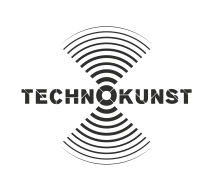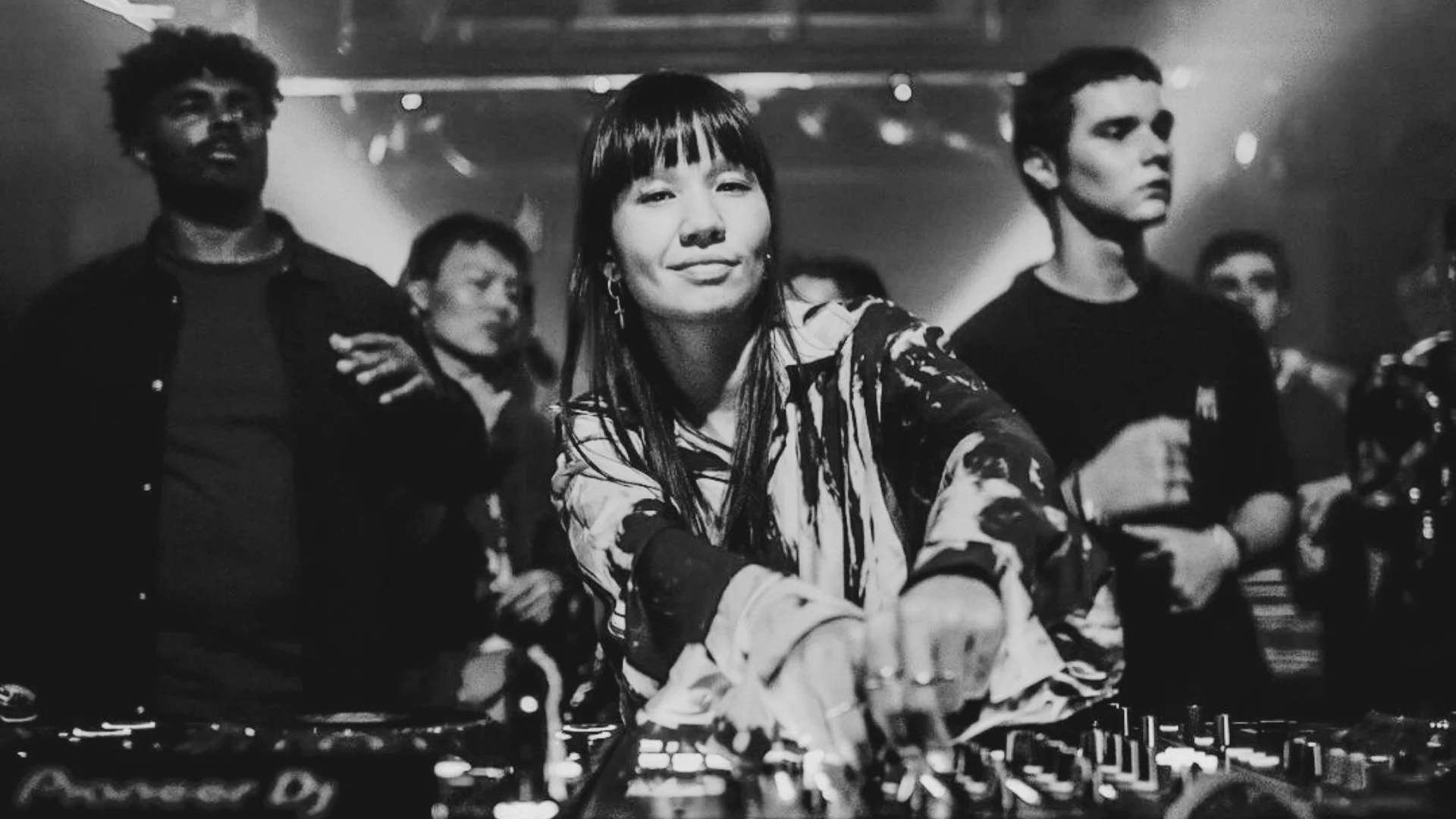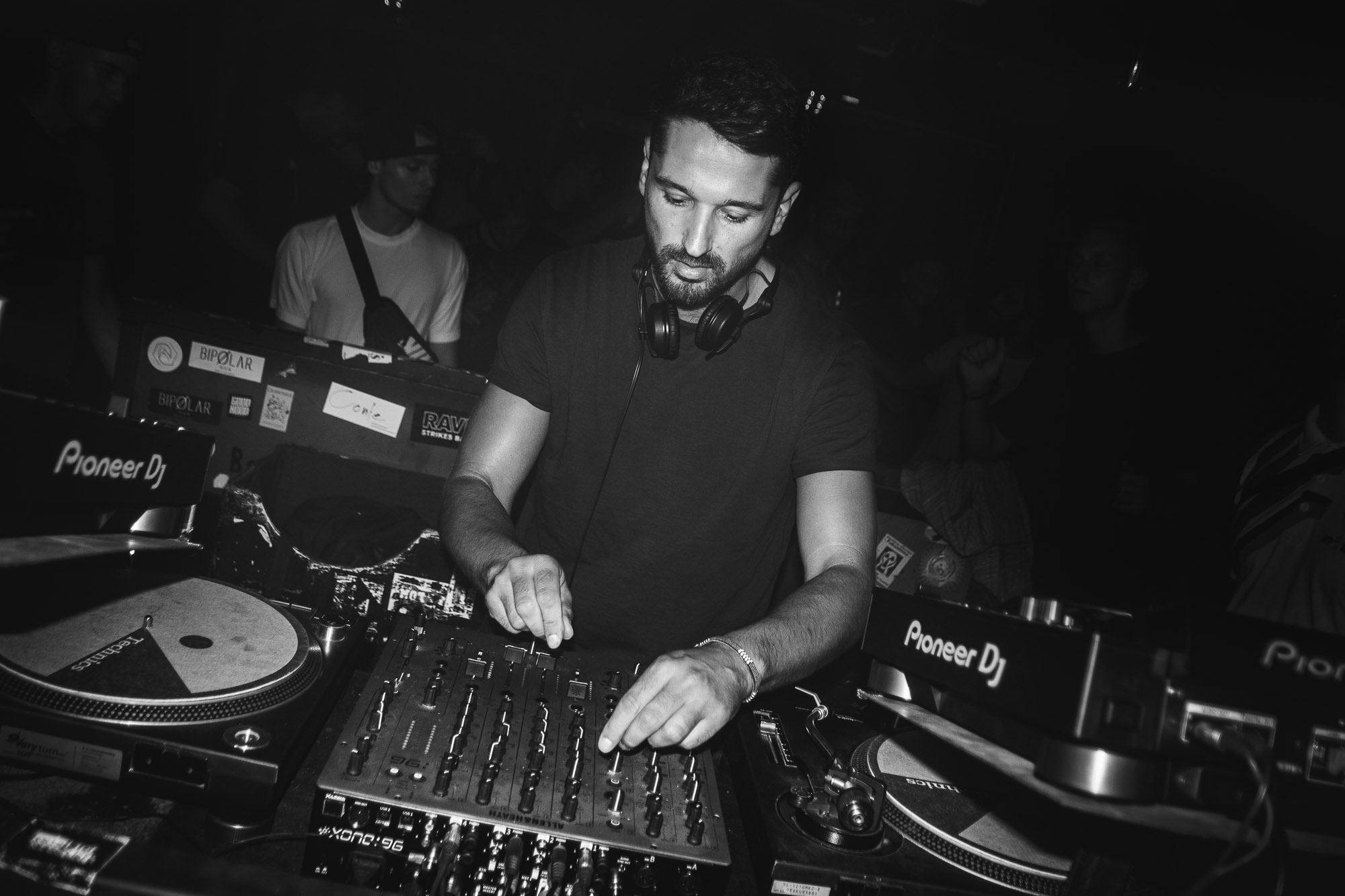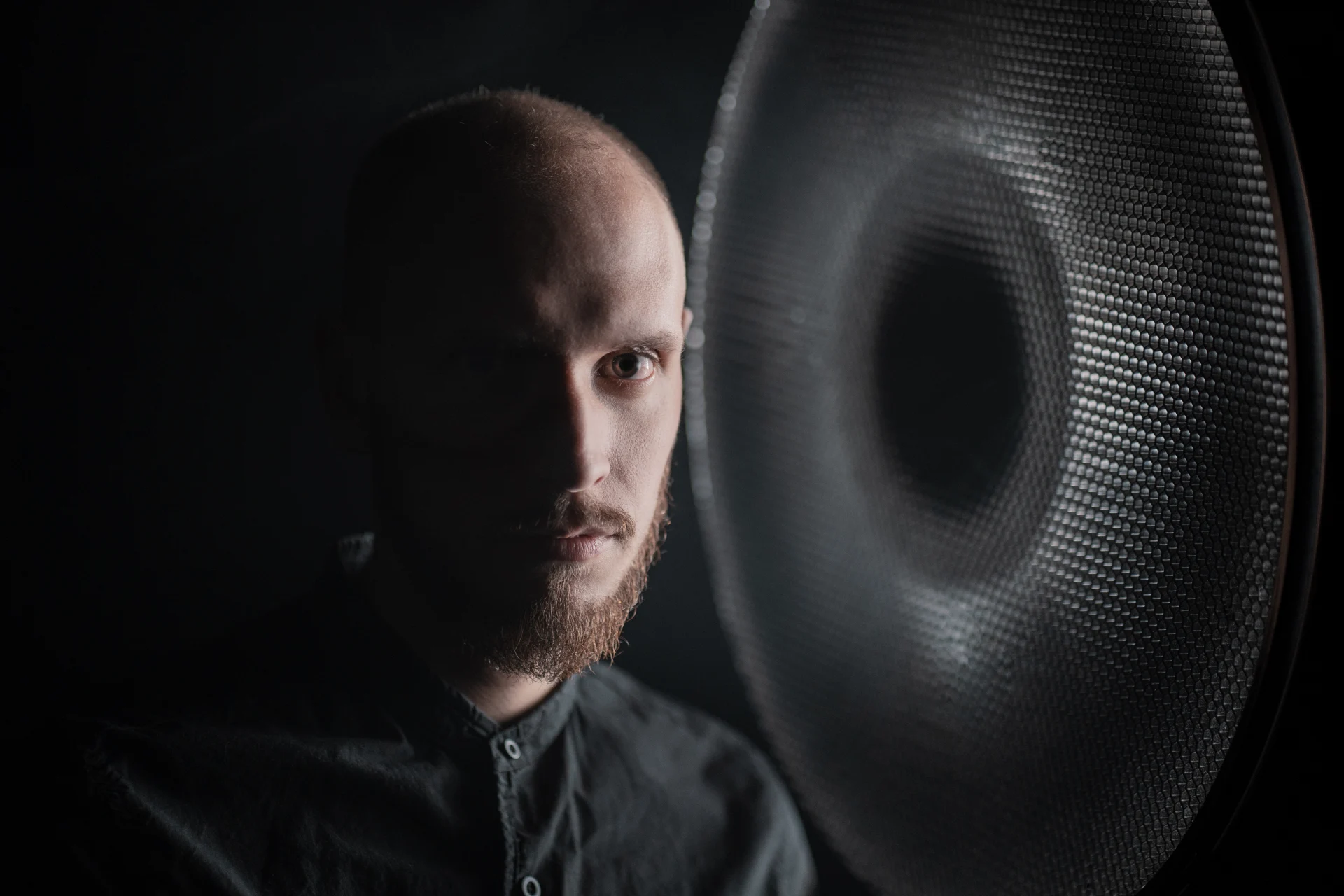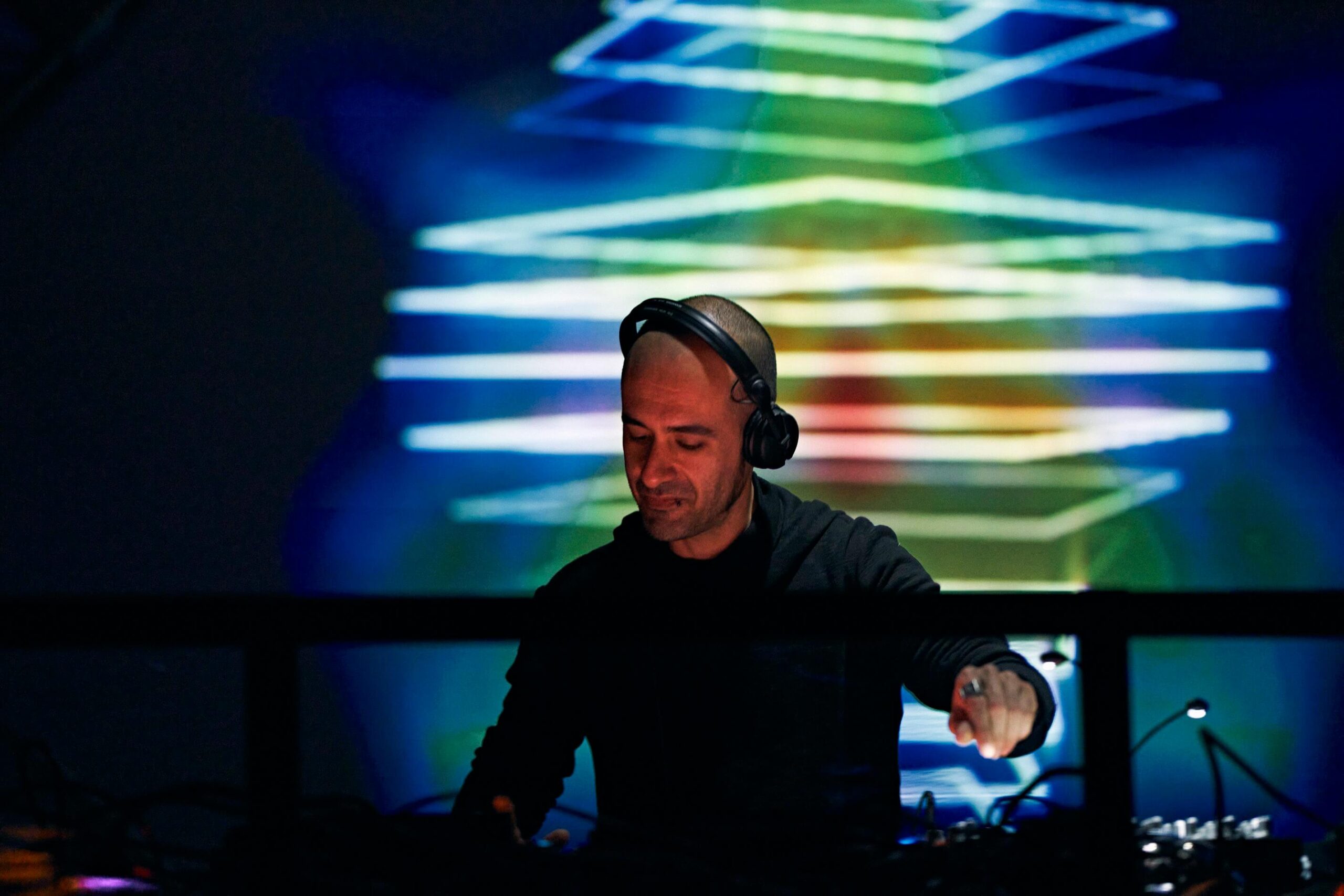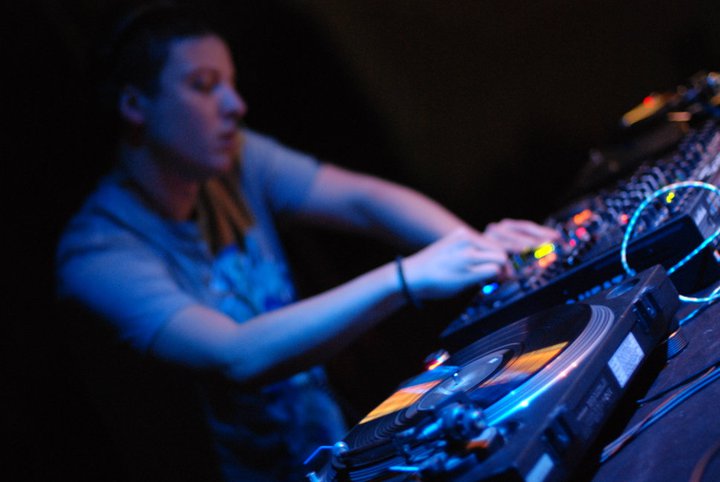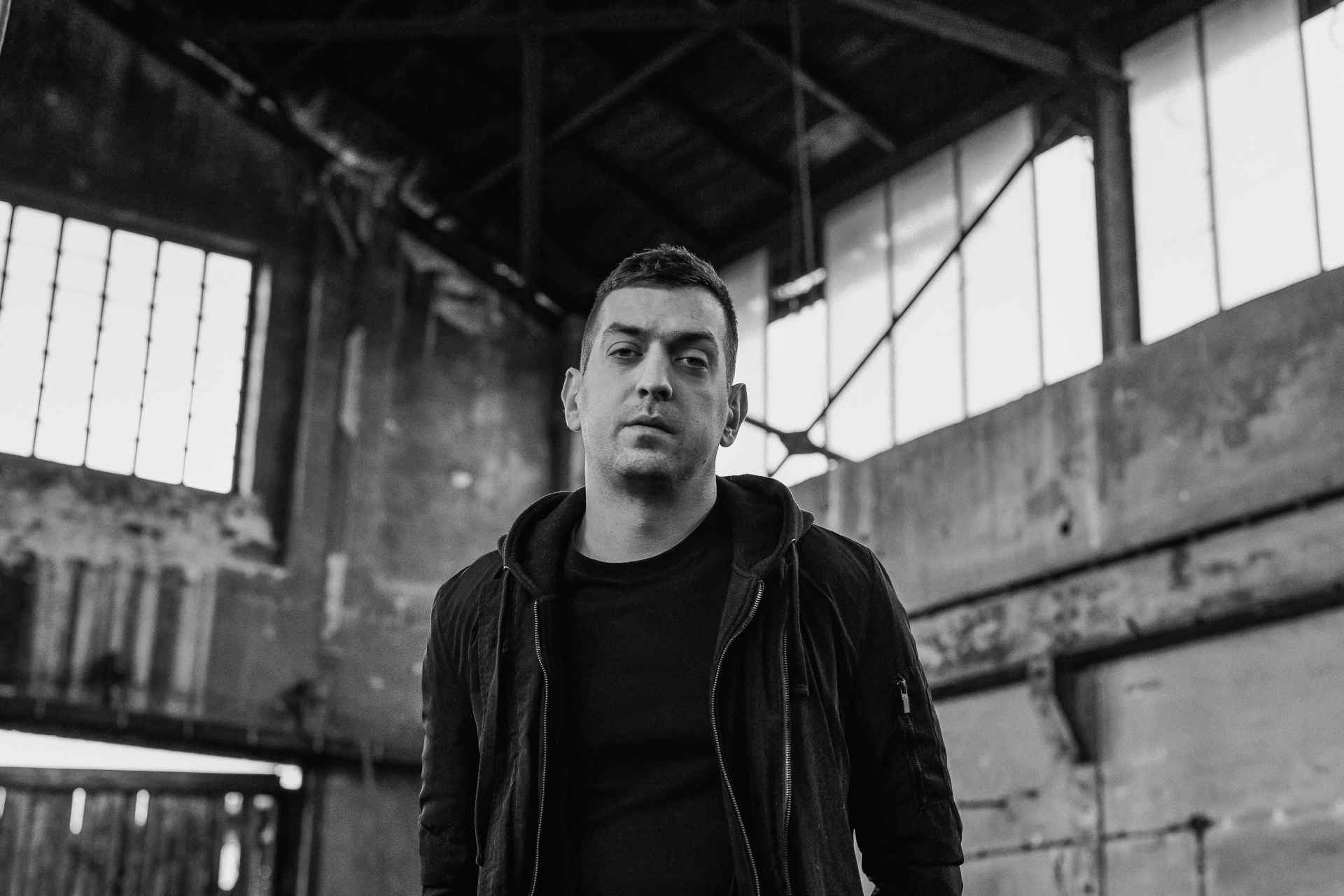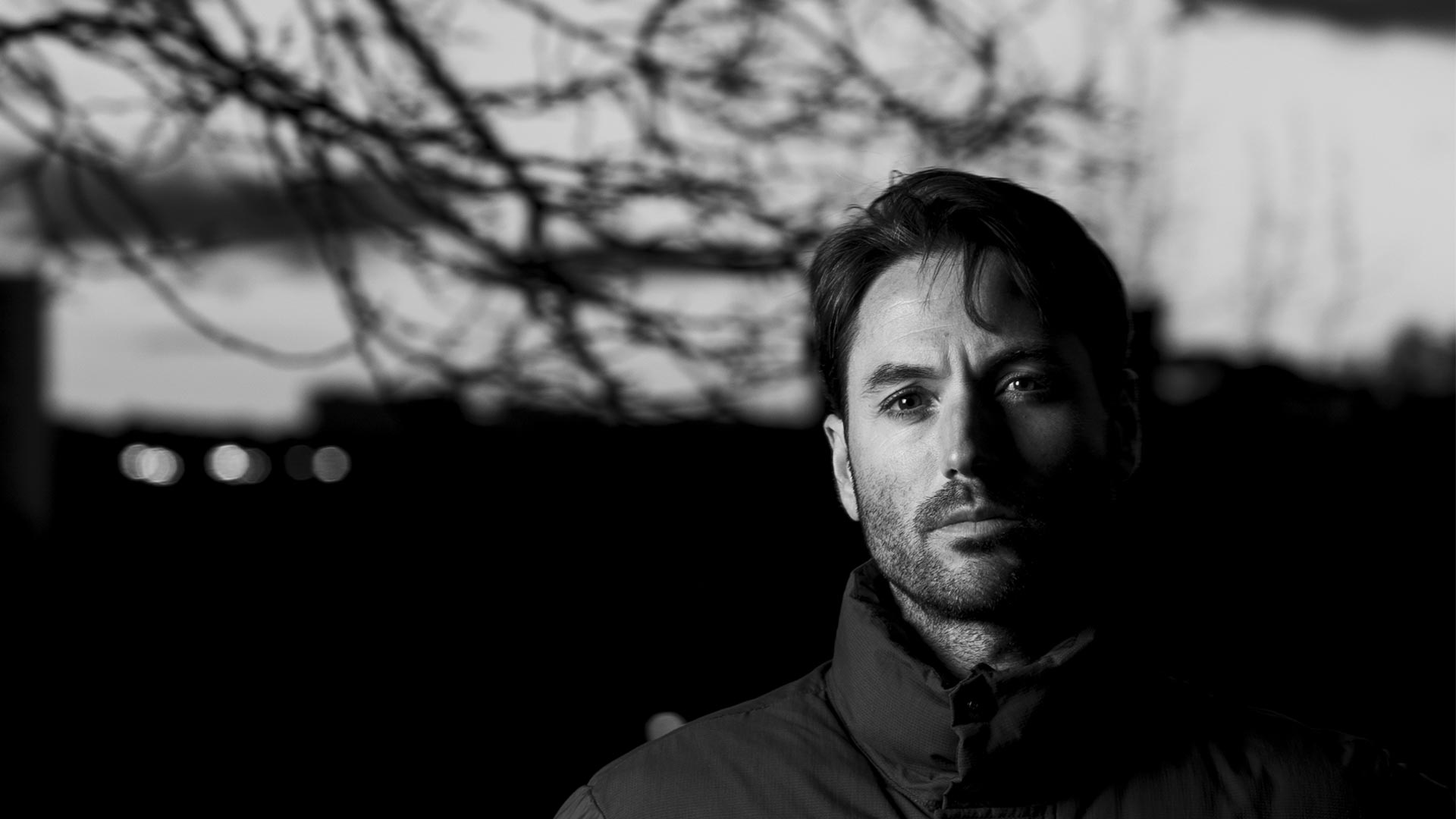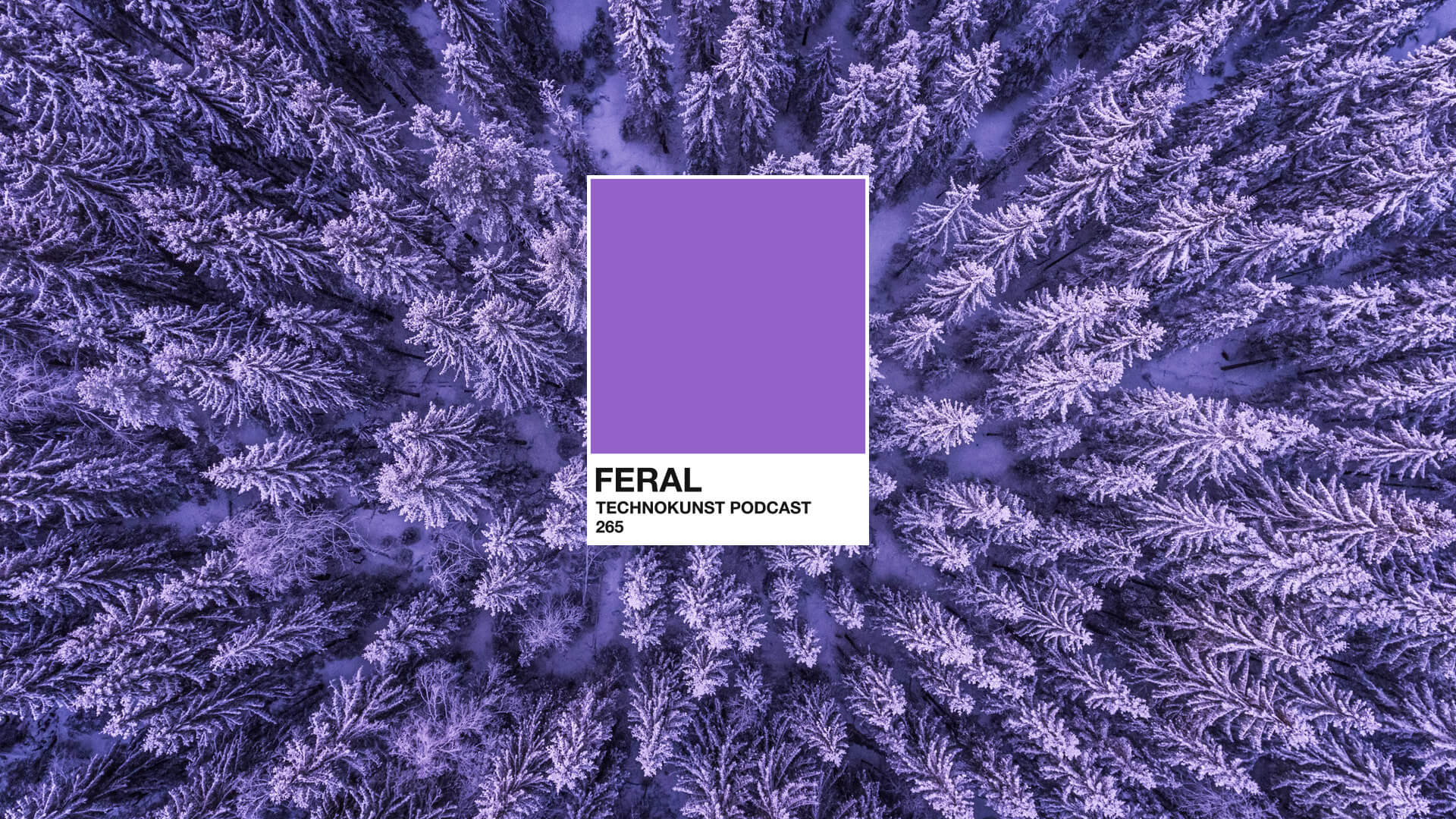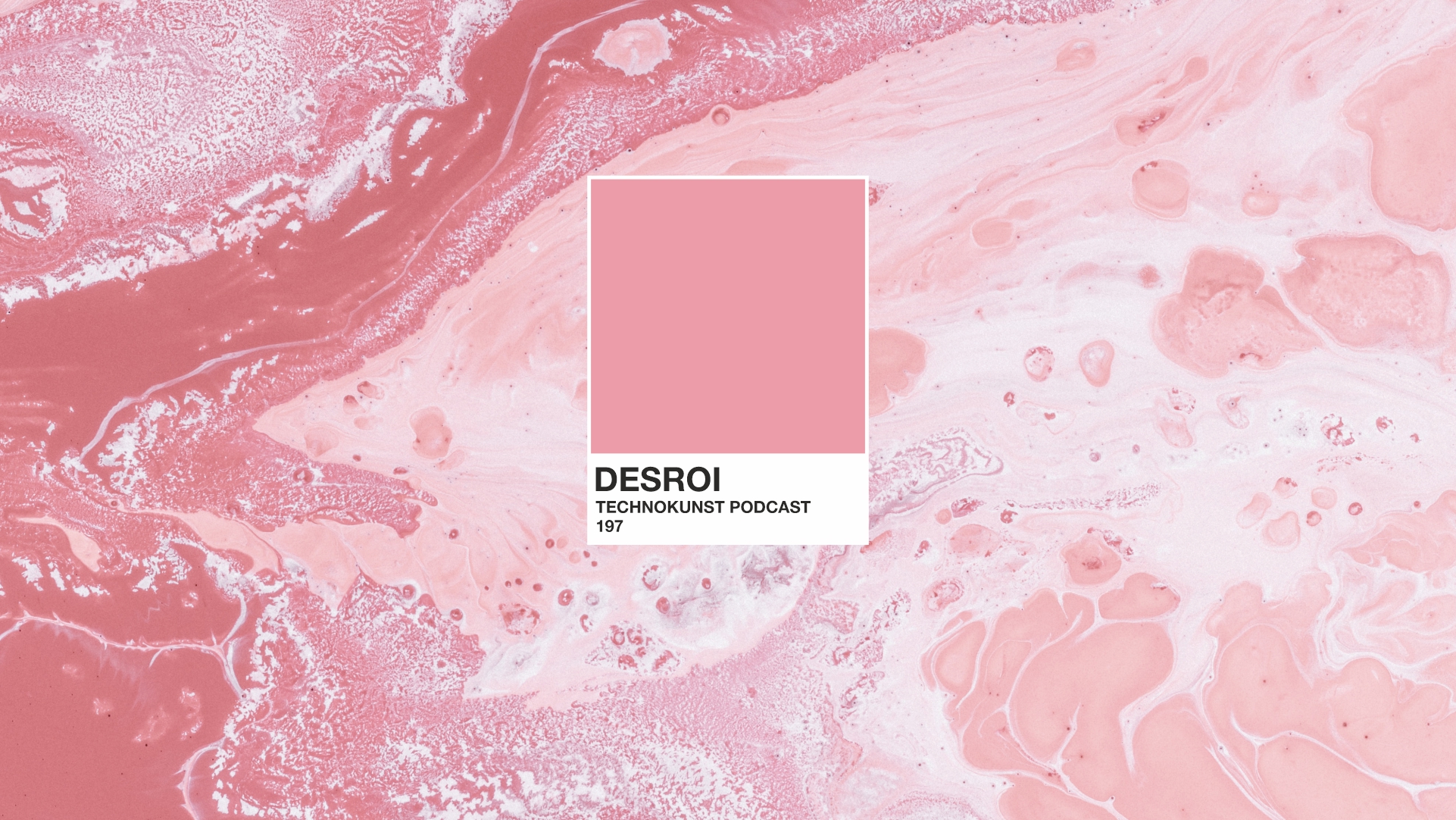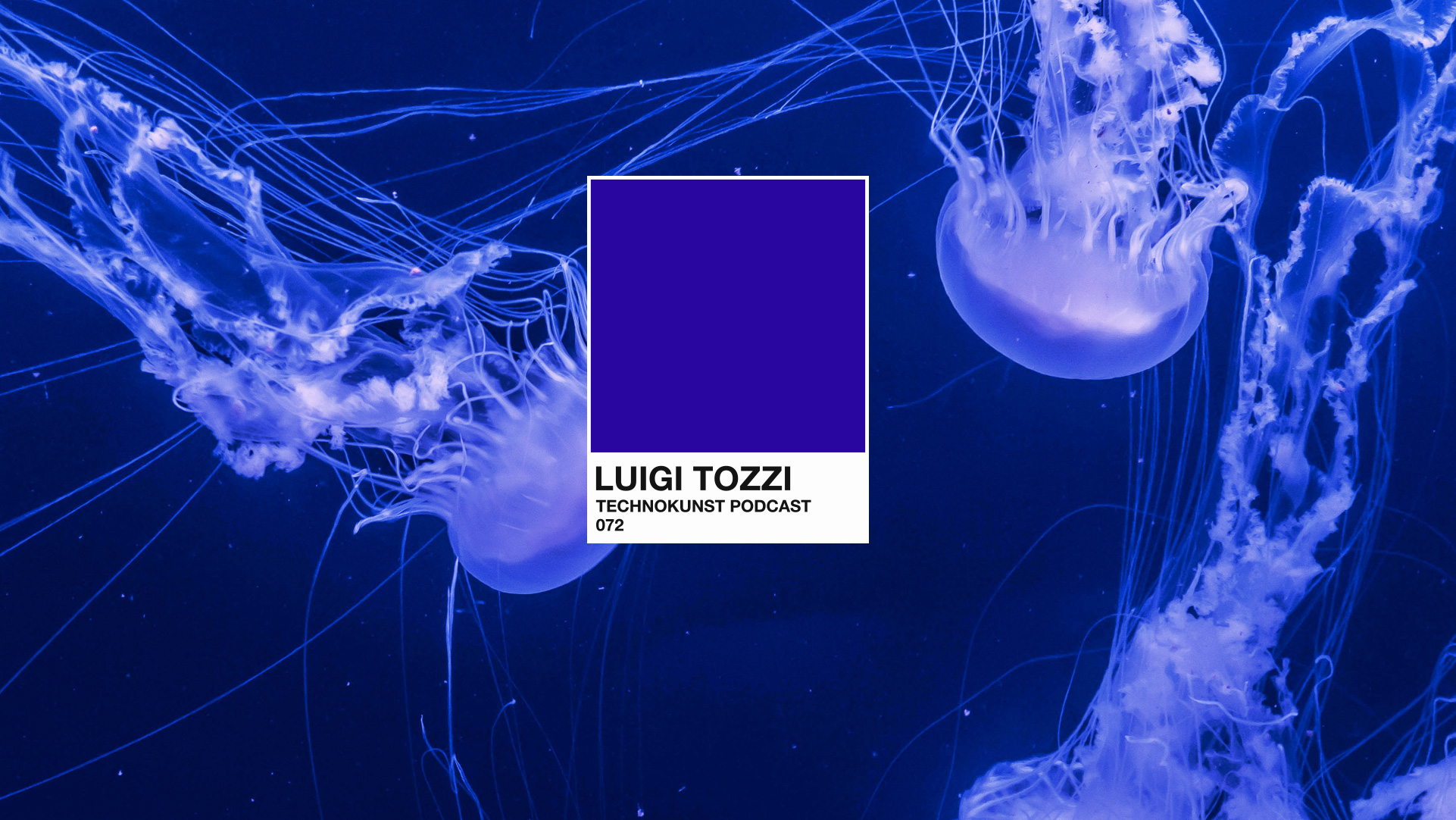Technokunst Asks: Polygonia
Hi Lindsey, thank you for answering our questions!
Your bio tells us a story about Polygonia being a multidisciplinary music and art project. Let’s start with music. Are you a classically trained musician? How do you apply techniques learned from classical music to your productions?
Yes, I am a classically trained musician. Almost my whole family works in this field either as orchestra / ensemble musicians, at a sheet music publishing company or as teachers. I took early music education lessons from the age of four and then started playing the rekorder at six; with 7 violin and piano followed. I didn’t study classical music because pursuing a career in this very hard business was no option I wanted to try. After finishing high school, I immediately stopped all education in classical music. I discovered over the years that I prefer jazz; I always loved to improvise and write my own melodies. This change is the reason that I got involved with some jazz musicians from Munich which led to two lovely collaborations, one with the saxophonist Moritz Stahl in the context of my electric jazz trio Lyder and the other one a duo collab with the drummer Simon Popp. I think that playing music with instruments doesn’t lay that far from electronic music production in terms of the theoretical background. The training of my musical hearing which I automatically learned with all the instruments, still helps me today with the harmonies I use and the rhythms I program. I think that instruments are just different kinds of ó synthesizers with a huge variety of beautiful timbres. There are many similarities between them such as envelopes, dynamics, overtones etc. I don’t really see a big difference besides the playing practice. The two worlds are very much connected for me as I also love to combine them when I record my voice or other instruments for my productions.
Where does your connection with Techno come from, and how has Munich been from a clubbing
perspective? Where do your influences lie in terms of other artists’ music?
My love for Techno started quite late when I visited the last edition of the fabulous Freqs of Nature Festival in 2018. I was particularly impressed by the performances of Rrose and Cio D’or. Before that I only listened to Drum and Bass, left field HipHop and anything that doesn’t have a 44-kick pattern. Stimming and very fast psytrance were the only exceptions. I went to plenty of DnB and Psytrance parties in Munich when I was growing up. But in general, I am more of a festival than a club visitor, so I stopped going out at some point shortly before I started producing which was 2017/2018. I didn’t really find options which featured the music I like in my city by that time. This changed as we have BLITZ club since 2017, I began going there from time to time in 2019, I think. This club is like a huge studio with an excellent sound system and interesting line ups. I like that they are really diverse in their booking in terms of genres, I always prefer when more than one genre is featured as I am bored
very quickly. It's hard to pin down the influences from other artists as I am listening to all kinds of different styles, there are so many who inspire me. Let me try to name a few who were crucial for my musical development (from various genre directions): Rrose, Tristan Arp, Bambounou, Kercha, Linfeng, Sam Gendel, Salomea, Floex, the early stuff of Nosaj Thing and Mister Bill, and many many more.
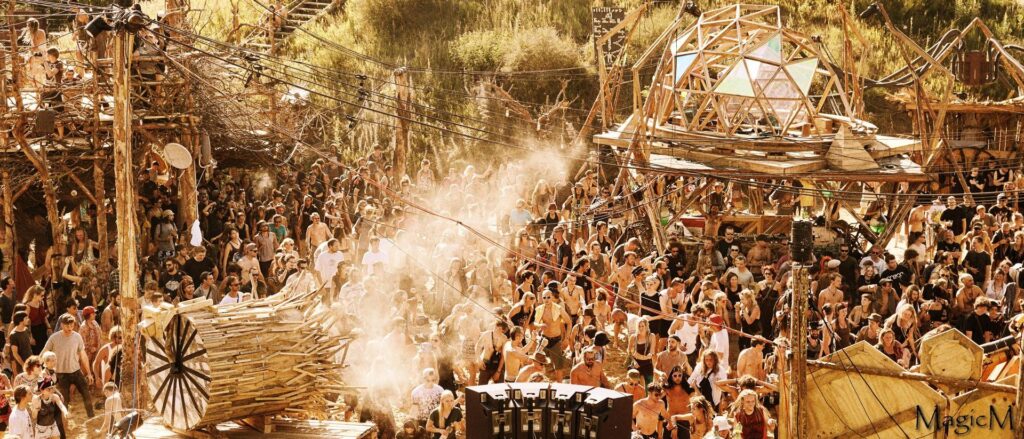
Your daily routine involves both music and graphic work. What came first, audio or visual production? How do these two creative outlets complement each other, and do you find that your visual art
influences your music, or vice versa?
I’d say that both came into my life at the same time. I was always equally interested in the two subjects; I drew tons of sketches when I was a child and never stopped doing so. I got into graffiti while going to high school and then started studying interior design afterwards. I think that visual and auditive art have a lot in common, I found many parameters which can be compared to each other such as rhythm, contrast, frequencies, texture, composition etc. When I have a little break from producing and do visual arts instead and vice versa, I always learn something for the other subject as well. I always feel like I’ve practiced the other thing when I come back to it. It refreshes my mind constantly to look into both worlds and it gives me new ideas for each of them. Additionally, I do all press shots myself as I am very much into photography, too. Like that I can explore all kinds of disciplines at the same time, all for the same purpose which is a very enriching experience.
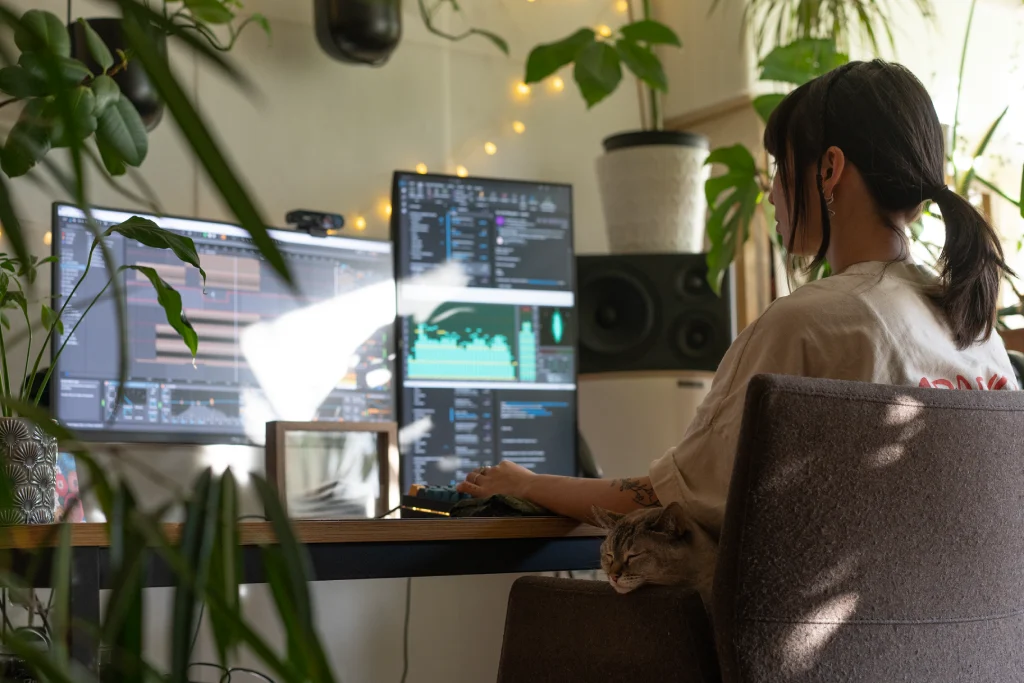
Can you tell us a little bit about the type and use of visual art you create? Is the intention for these to be used as for example assets for a release or show, or do you also create just for art’s sake? You have been invited to create the cover for the Technokunst event you are set to play at. What was the creative process like?
Before I had such a tight schedule like I have now, I created a lot of art just for art’s sake. But nowadays I don’t find the time anymore to do so unfortunately. I still use the opportunity of my two labels to feel free in my visual expression for the artworks. It is a huge pleasure for me to put my energy into those illustrations for QEONE. And I love experimenting with all kinds of different techniques for the covers on IO. I also love doing the designs for Lowless as I am working with a very different kind of aesthetic for them. The creative process of the cover for this upcoming event was that I first used my watercolour on paper with simple moves, then photographed it and put it into photoshop afterwards. I work a lot with colour grading, the artwork ran through many colour changes after I inverted the motif and created the rhythmical composition of the shapes. I tried different styles of typography and experimented with the positioning of the text within the motif. It’s a typical design process I guess, just without the conceptual thinking. I was aiming for a certain style aesthetic as you were suggesting so and I liked the idea.
In some of your tracks, for example “Otro Mundo”, we can also hear vocals. Do you record your own singing? What is the role that your voice plays in your music? Is the idea of using your voice an extension of production and an instrument, or is it also used to convey thought and meaning?
Yes, I don’t like to use any samples (besides a small selection of drums which I am too lazy to synthesize such as bongos) by other people. I want my sound to be unique and therefore I record or synthesize everything myself. As I love singing and feel that I can express another layer of emotion through my voice, I like to work with it in my productions as well. I’d say sometimes I use my voice as an instrument like a synthesizer, sometimes I use it to convey thought and meaning like in ‘Otro Mundo’. I think the texture of a voice is truly unique, it can be used in so many different manners like other acoustic instruments as well. In my collab album ‘Candid’ with Simon Popp for example my voice is used as a synth, I am very inspired by the technique of scatting in Jazz, I use the things I like about it in my own way. Same also for my trio Lyder, I sing there but without any specific lyrics. I think the voice can already transport so much emotion without saying any words. The listener will naturally feel what the message is.
Do you also sing live on shows or DJ sets?
I sing live during concerts with my trio Lyder and will also do it when I perform with Simon Popp. But I don’t do it in my solo sets (DJ or live) yet. Maybe later, but for now I leave it to my collab projects.
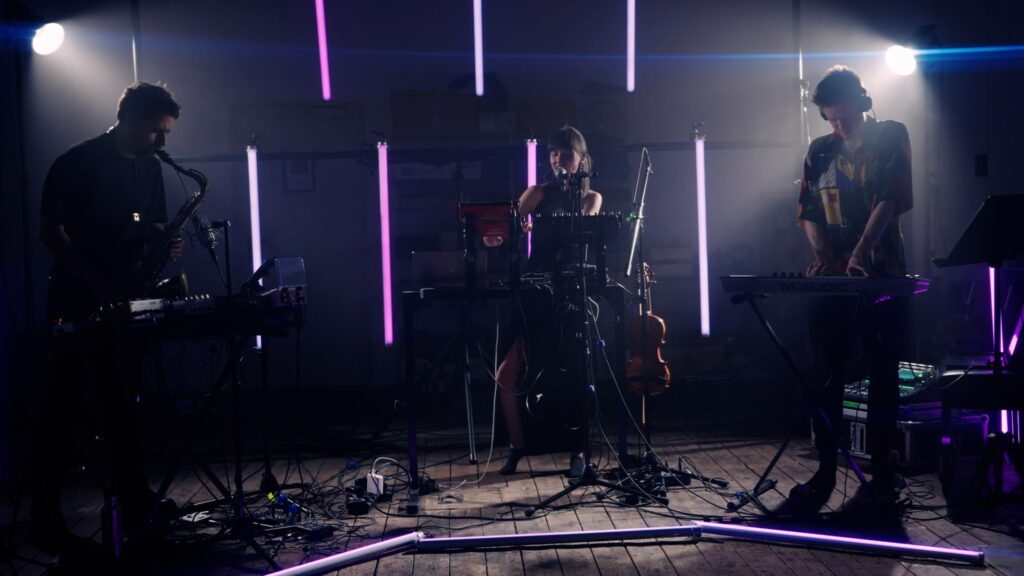
You are often photographed together with plants. Surely, nature must be a core inspiration of yours? The name Polygonia also implies a strong connection, these are a genus of butterflies after all.
Indeed, plants and animals are very crucial for me. I have a lot of plants in my studio and the rest of the apartment - I built myself a little paradise garden. They give me a feeling of peace and a deeper understanding of how nature works. There are so many things to know in order to keep them alive, I learn more and more about them day by day. I am highly inspired by the huge variety of forms of existences on this planet and I love to use those inspirations as synaesthetic input for my music. That my name is the name of a butterfly is actually a coincidence. I selected this name before I produced music, it was meant for all my creative output which was mainly focussed on visual art by that time. I wanted a name which showed that I love to do various cultural disciplines, I was also sewing some of my own clothes, writing lyrical texts, doing singer songwriter music, photography and things like that. That’s why I thought something like Polygon would be nice, but I was not completely satisfied, I wanted something more unique. Then I stumbled upon this beautiful plant called Fittonia, I really loved the ending of this word, so I thought why not put together Polygon and -onia. It sounds like the name for a landscape with many facets. That’s how this name was created. I didn’t research about it as my project was so tiny by that time, I didn’t know anything about where I wanted to go with it. Years later I found out that it was the name of the butterfly which was a wonderful coincidence.
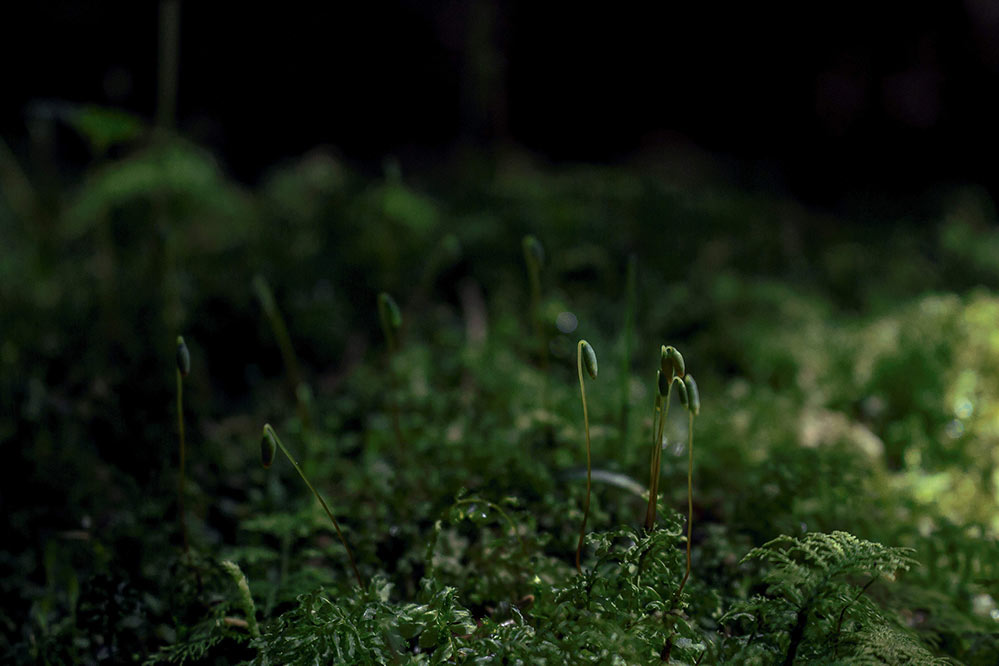
Your music is described as having a mystical, organic character. ARA’s copywriter even called it avant-garde dance music in their release sheet for “Living Patterns”. How would you describe it? How do you experiment with sounds in your creations? Do you have any production techniques you think are special to you?
I would also describe my music as organic and mystic. Groovy is another attribute which is crucial for my work. Clean and psychedelic as well plus rich in harmony and sound design. There is no go to technique for me, the only thing which I can definitely say is that I do almost do everything with the Ableton operator and Ableton’s built in FX. I really love to modulate my elements, that’s why I synthesize most of them myself. In each track I try to do something new which I did not do before; I love exploring the endless possibilities of music production. I have months in which I prefer doing everything by synthesis, then there are times when I prefer working with sample manipulation.
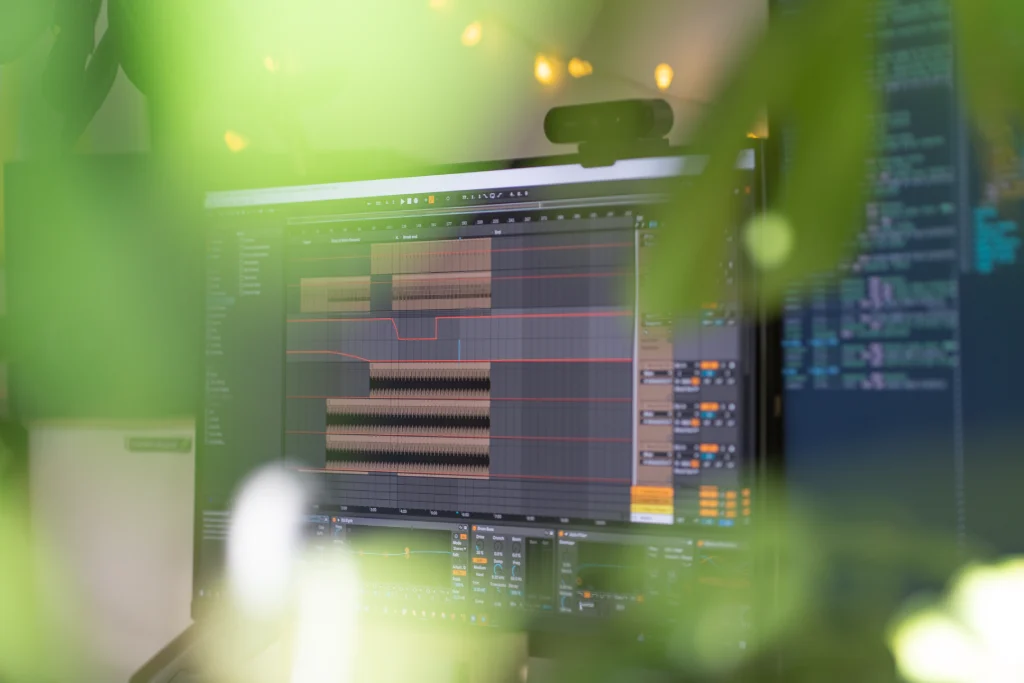
Can you talk us through your studio and your favourite gear for production?
I am doing everything completely in the box. I don’t use that many plugins, I like to keep it minimal as I also want to use the same things which I use in my live sets. That’s mainly the Ableton Operator as mentioned, the built in FX and some utility plugins such as the Valhalla Reverbs and Delays, the Sonic Academy Kick 2 and some saturations plus limiters which are not built in. I discovered the IPad as a very mighty device as well, I love the Pattering 2 drum machine, Borderlands Granular and TouchAble Pro. Next to Ableton the most central software in my workflow is definitely my audio analyser which includes a goniometer, spectrum analyser, level- and peak meter, correlation meter etc. It marks one of the most important elements in my work. I am convinced that the final great quality of a track comes from a proper mixdown. I used to work a lot with the Digicheck by RME but now we started developing our own analyser at IO, I prefer to use this one now. We’ll probably release it next or the year after. My hardware are my acoustic instruments :)
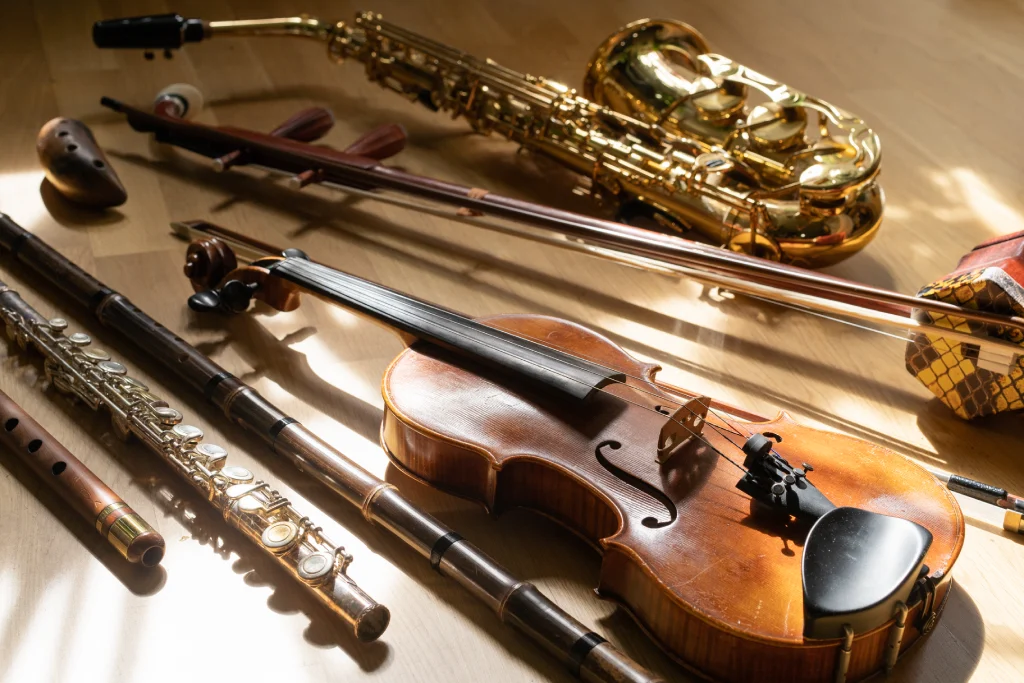
You founded your own label QEONE last year. How does owning a label contribute to your artisticfreedom, and what kind of vision do you have for the label in terms of supporting and promoting other artists?
As mentioned, I really enjoy the creation of the cover artworks, it makes me dig deeper into the field of illustration. My vision is that my label should follow a certain sound aesthetic which is very groovy, organic, sound design focussed and unique in its own way but not a specific genre. All things between Ambient, Techno, House, Dubstep, Experimental and much more is allowed as long as it has a special twist. The covers should mirror this; therefore, I chose a playful and colourful organic style with a psychedelic touch.
Furthermore, I plan to do only digital releases with this label. I want to support small artists, some of them nobody knows before their first release will come out. I couldn’t afford to do this if I would do vinyl records and next to that I don’t want to contribute to plastic production with my label. If I start with physical releases, I would only do it with a completely sustainable method. I didn’t look into it yet as I still want to build the name of the label up to a certain point until I check this. And in the end I can imagine staying with digital only though, let’s see about this later. I like it that having a label means networking a lot, it makes me get to know the scene even better. I also love doing events with it, especially the recent on board x qeone night at OHM was incredible. And if I get to feature one of the emerging artists from the label’s roster like Cafe de la Jungle, it makes me even happier.
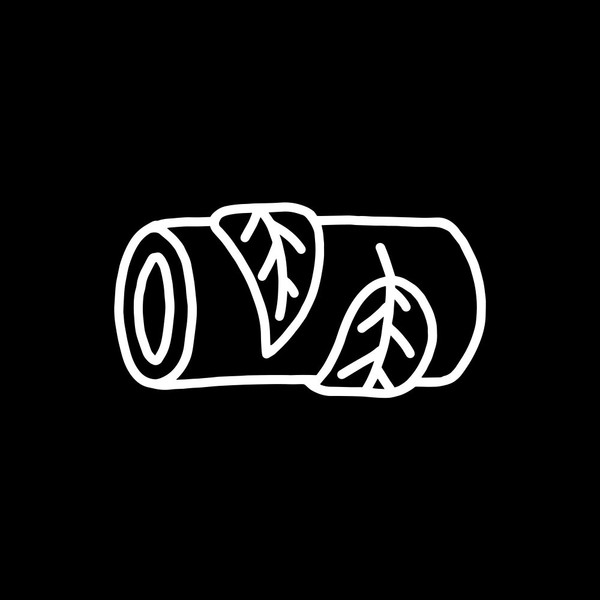
How about the other label you are involved with, IO? This is a collaborative effort with fellow producers Dycide and MTRL. How is IO positioned compared to QEONE?
IO is much more a collective than a label. It was built by our circle of friends from Munich and the concept is or was that we mainly release Deep Techno, Ambient and from time to time some downtempo music. It has a very different approach as it is not focussed on a certain sound aesthetic but on the individual styles of our label members. We all have a very different approach to our productions, and we use IO as a platform to show our sound palette in the range of the named genres. Although I think now, we reached a point from which we want to widen our style spectrum. Members such as FTP Doctor, Dycide and also a new artist whom we’ll announce very soon are breaking out of Deep Techno. I count myself in as well. I love to release IO artists on QEONE as well, but the vision of the two labels is definitely a different one. With IO we only release our closed circle of members and no external artists. There was only one exception for the one and only vinyl release we ever did in the past, the ‘Of Morning and Of Glory’ VA featuring the artists Infinity, Olorun, Foreign Material and Javier Marimon.
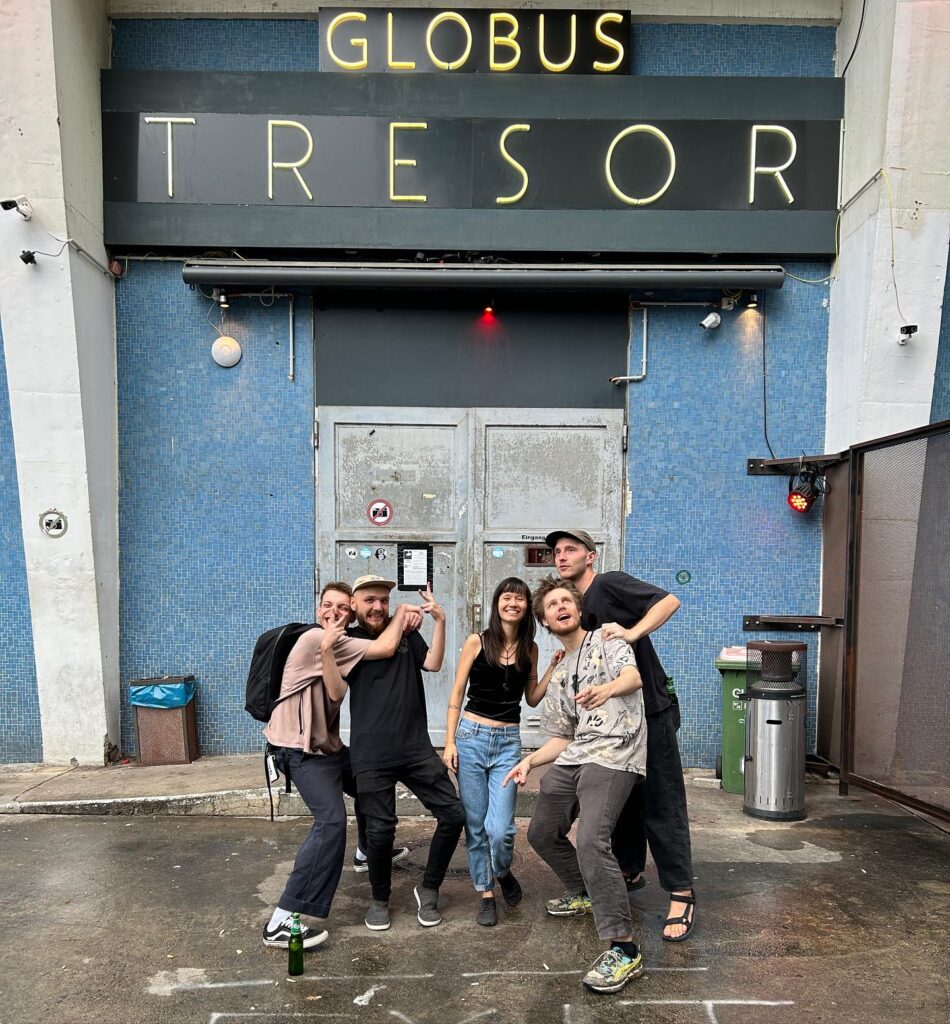
In a past interview, you spoke about being proud of producing as a woman and breaking stereotypes. How has your journey been, navigating the music industry, and what advice would you give to aspiring female producers looking to get into production?
My journey has been very interesting and positive, I am thankful for the welcoming vibe of the scene, and I am very lucky that I didn’t really have any bad experiences with men in the music industry. I heard bad stories from other people though, glad that I didn’t experience any of those myself yet. I am quite happy to see more and more talented female producers popping up nowadays. It was quite a task to find some fitting ones for my label as I don’t want to release a woman just because she’s a woman, but I found some really good ones now – some of their releases are going to come out next year. What I am searching for right now are also artists from the LGBTQIA+ scene, so if anybody of you reads this, feel free to reach out if you think that your sound matches the label. The advice I would tell female, LGBTQIA+ and any other aspiring artists is to just keep going, nerd into the subject and do self-releases. A label is not always the best way to start as an artist, only if it is really professional. When I started producing my ambient tracks, I released them as singles on my own bandcamp, it still sells until this day and I get all the payouts 100% myself which is actually great. I discovered some small artists, Cafe de la Jungle was also one of them, who did the vinyl pressing, the promo, distribution etc by themselves and learned so much from this process. I think it is a really helpful start to first explore yourself how the music industry works, make yourself independent and be your own boss. And later, always check if a label which wants to collaborate with you is really working in a professional manner, there are too many who are not.
What can fans expect from Polygonia in 2024? Are there any upcoming projects or collaborations that you're particularly excited about? Perhaps your record with Popp being released right now on Munich- based label Squama?
Indeed, in the beginning of 2024, my EP on Midgar Records will be released. Furthermore, I’ll have a very exciting collab release upcoming with one of my idol artists. And other than that, I am also working on some more material for some of my favourite labels, you’ll see. I want it to be a surprise hehe. And yes, my collab album ‘Candid’ with the drummer Simon Popp just got released on Squama, really proud of this one.
Favourite venue you’ve played at? How was the energy? Do you find that it’s always easy for you to
get into the right mindset for a performance?
Without question, Berghain is on the list of my fav venues. Each time the energy is fascinating, this floor is really something. Hard to describe, but full of magic. I love playing long sets, and the standard set length there is always 4 hours with a toilet behind the booth. Great conditions! Other than that, De School was also really amazing; so sad that it’s going to close soon. I love the vibe there, very focussed on the music only. You can feel that everybody is completely sucked in. I would say that it is relatively easy for me to get the mindset started. There are only very few occasions in which I don’t. I love playing DJ sets and am always hungry to check out some new tunes and explore how the audience is like. Each city and country is different in that respect, you can learn a lot about the mentality of the people like that, too.
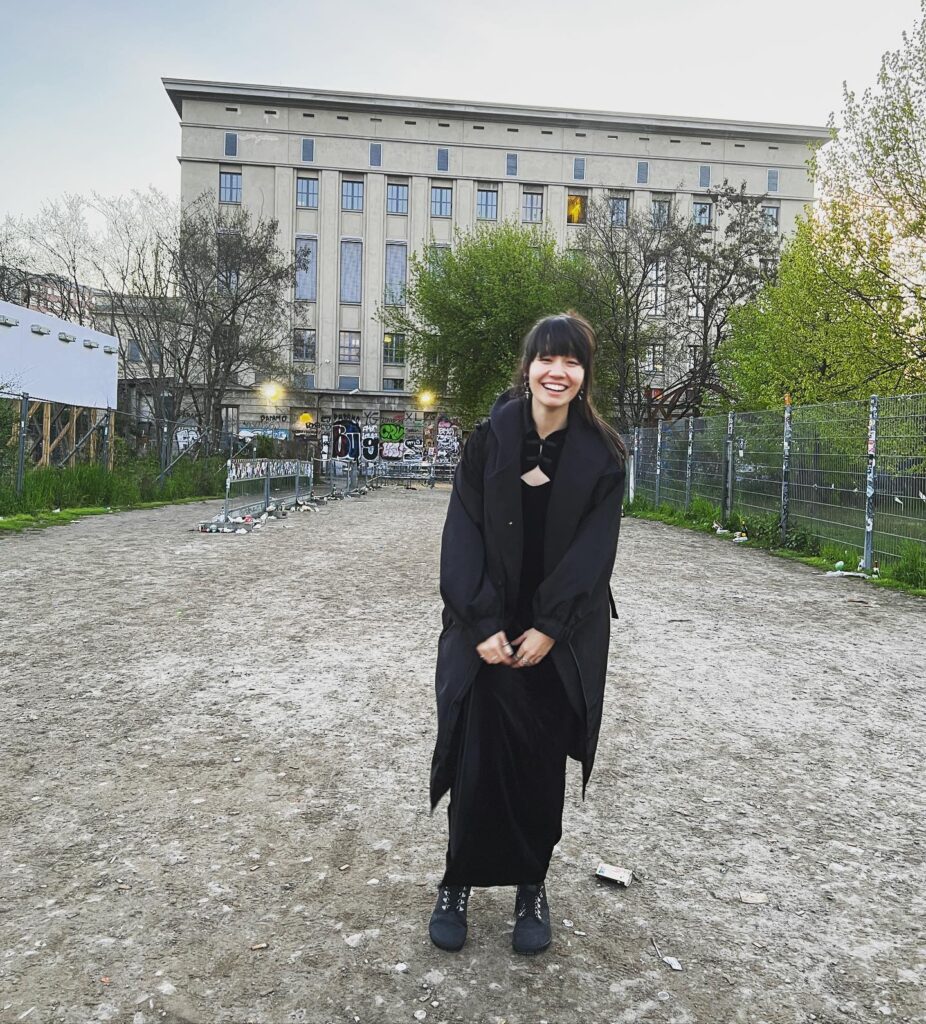
Can you share some of your favourite music, - perhaps not from the realm of Techno - that you wish
readers of this interview heard?
Quartz – Play Mu Steez
Moses Yoofee Trio – throwback
Venetian Snares – Suffocate
Sam Gendel – Candy Rain
Kokoroko – Those Good Times
Francis Bebey – Sansa Tristesse
Eli Keszler – The Vaulting Sky
https://www.polygonia-creations.com/
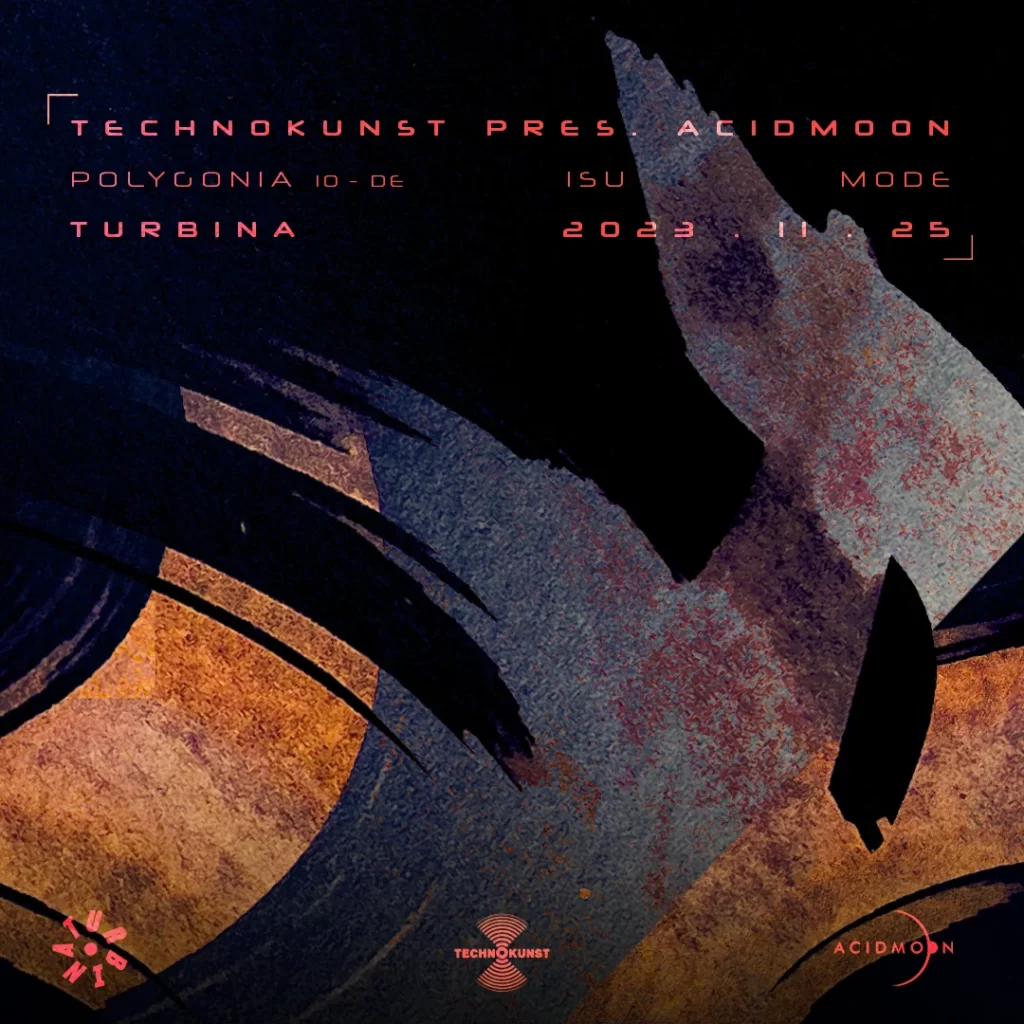
Technokunst asks: Oliver Rosemann
Hi Oliver, thank you for answering our questions!
Can you tell us a little bit about your background and how you got in touch with Techno? What are
some of the initial influences that shaped your sound?
At that time electronic music was new and came over me like liquid night haha. The first things I
really celebrated were Depeche Mode, The Prodigy then Labels like Communique and Dance Mania
or Plus 8 and so on. I was influenced by everything that was released in 97/98/99, I think. But also
from technology, computers and science, like quantum physics, which fascinates me very much.
How was growing up in Leipzig like from a clubbing perspective and how have things changed in
the last few years?
Growing up in Leipzig wasn't bad. We had good illegal parties, clubs and events. E.g. of course the
"Distillery" and also the "10/40" But it seems to me that partying used to be more carefree back
then. Without the Internet, for example, and fewer things that could be discussed to the ground.
Back then there were more bubbles, maybe more individuality, because trends took a long time to
get from one place to another. So there were simply several different trends from place to place.
That’s interesting! Today, everything is global, everyone has access to the same trend through the
Internet. As a result, many people do the same thing and many things become boring. For example,
the musical individuality from one city to another. Chicago sound, Detroit sound. I don't know if there
can still be such differences today. But maybe I'm wrong. Just my idea at the moment when I think
about it. Also of course the internet has advantages, haha.
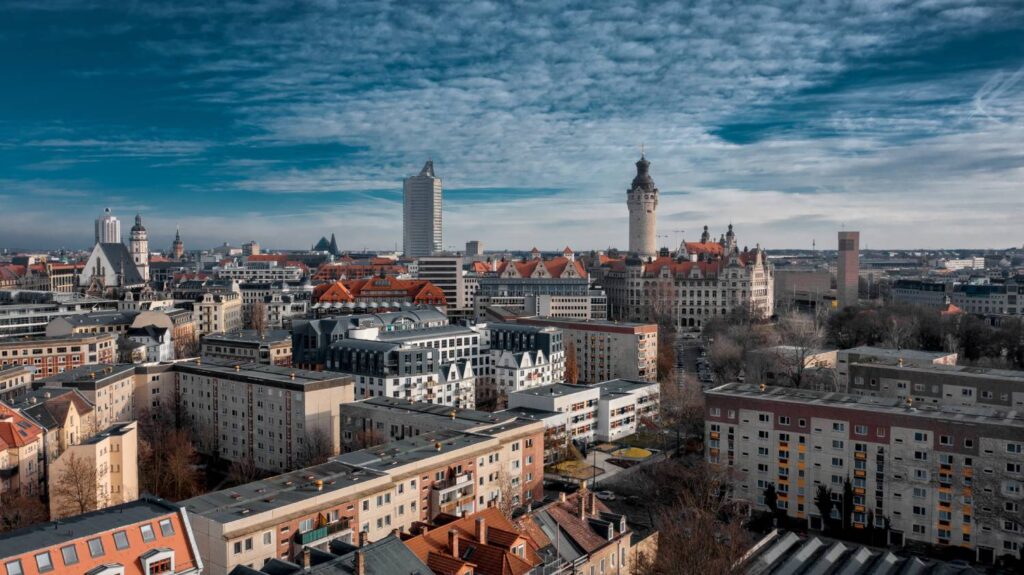
How do you think your “sound” has evolved over time? Is there a signature that you can attribute
to your productions?
I think my influences have remained noticeable, but of course the quality of the sound has improved.
On the one hand you learn a lot, you gain experience. But at the same time, the tools you have at
your disposal are getting better and better.
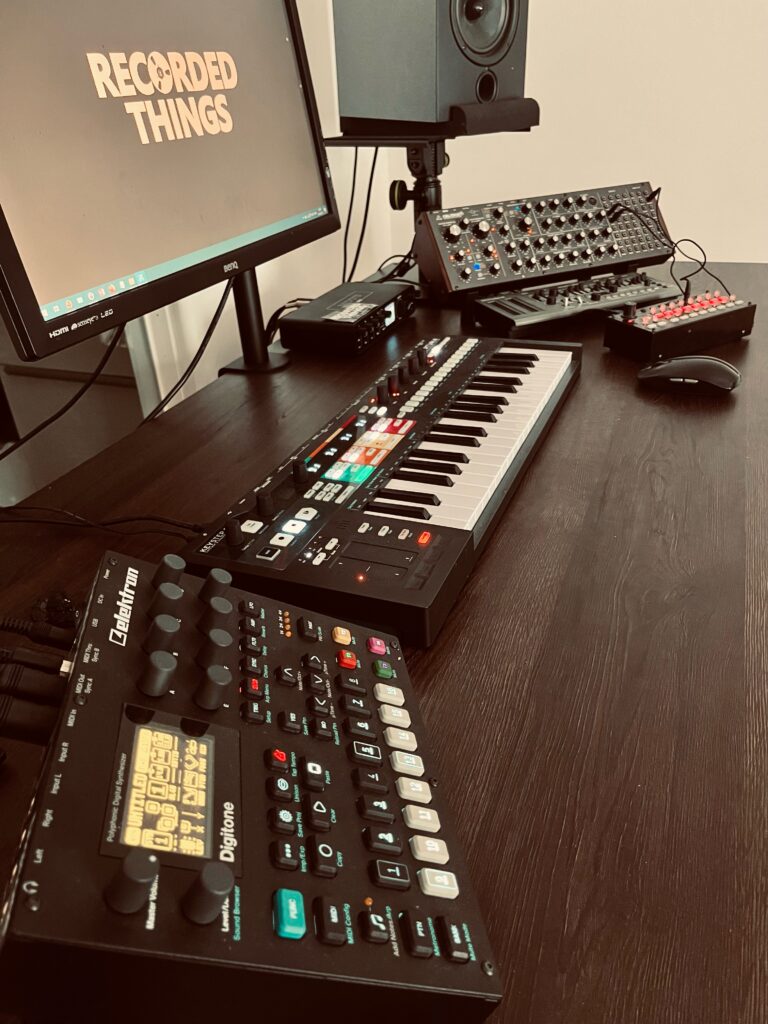
Is there anyone out there who helped you grow and learn, or did you pick it up all by yourself?
How do you find working with other producers in the studio? Specifically asking because it seems
you have really found the common ground in production with Pfirter.
I taught myself everything. But that's because of the way I live. I love exploring things, experimenting
and always finding new ways by my own and perhaps discovering the undiscovered. It's been that
way since I was a kid, and not just in music. Collaborating with other artists is always very gripping
because it takes things in a different direction. It's very interesting. With Pfirter, it's a perfect
direction. I love this collaboration!
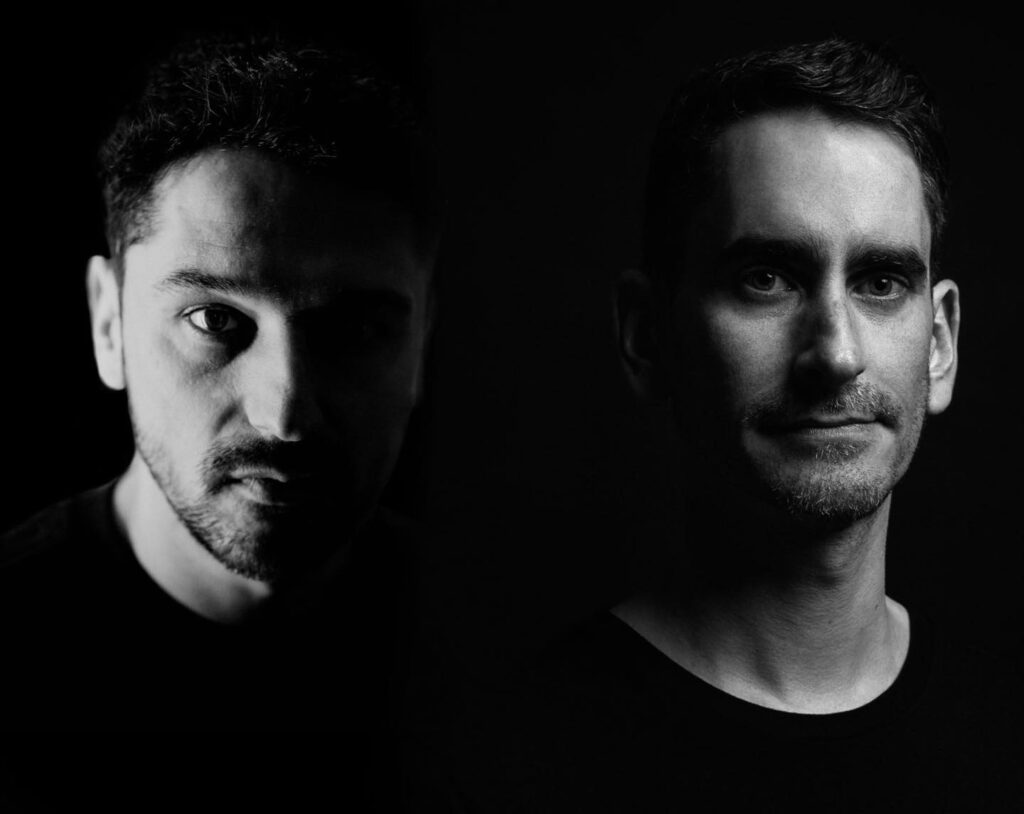
We see that your label, - Recorded Things - is mostly a means to release your own music with full
creative control, but we also see some guest appearances - such as Sweden’s Lakej or Spain’s
PWCCA… How did you arrive to the decision with your friend Sebastian to start the label together,
and how do you curate the output?
It's more of a means to release my own taste in music with full creative control. PWCCA and Lakej are
a very good example of that. I love their music! But stand fully behind every release on the label. All
stuff that I would play in sets as well. Starting a label has always been in my head and with Sebastian
we finally started the adventure.
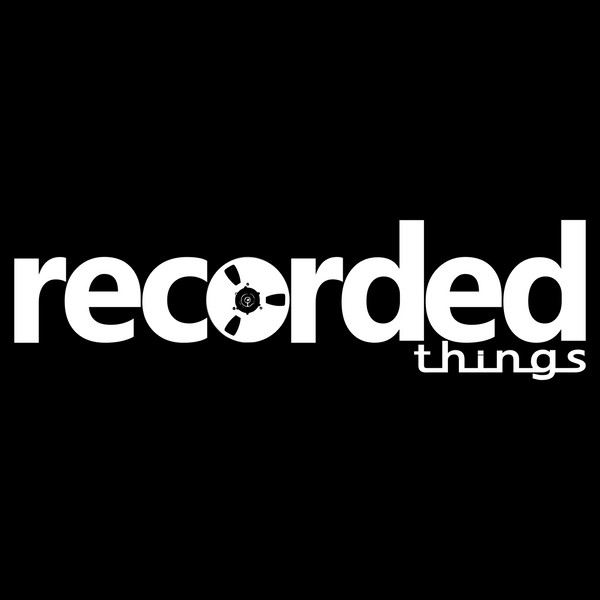
Is the name of the label a reference to recording tracks live, in one go? Sort-of how for example
Mike Parker has been working, straying away from a more widespread method of production
where tracks are built up in a DAW program?
No with the name i just wanted to express that i don't want to serve a special genre. it's my
understanding of techno. And it names the purest form to make music audible for someone else
when it's not live. You have to record it. And so it's Recorded Things.
Technokunst is a collective of artists who embrace the tradition of vinyl dj-ing, so we are happy to
see labels like yours still release records. Is it important for you to keep records going, or is it
merely a nod to some DJs and collectors out there? How do you decide on what to press and what
to keep digital?
We definitely wanted to offer vinyl as well. I always really liked having something in my hand. To be
happy to unwrap it, put it on and listen to it. I'm sure this will create a different perception. Recorded
Things will mainly feature the release of the "Season" series on vinyl.
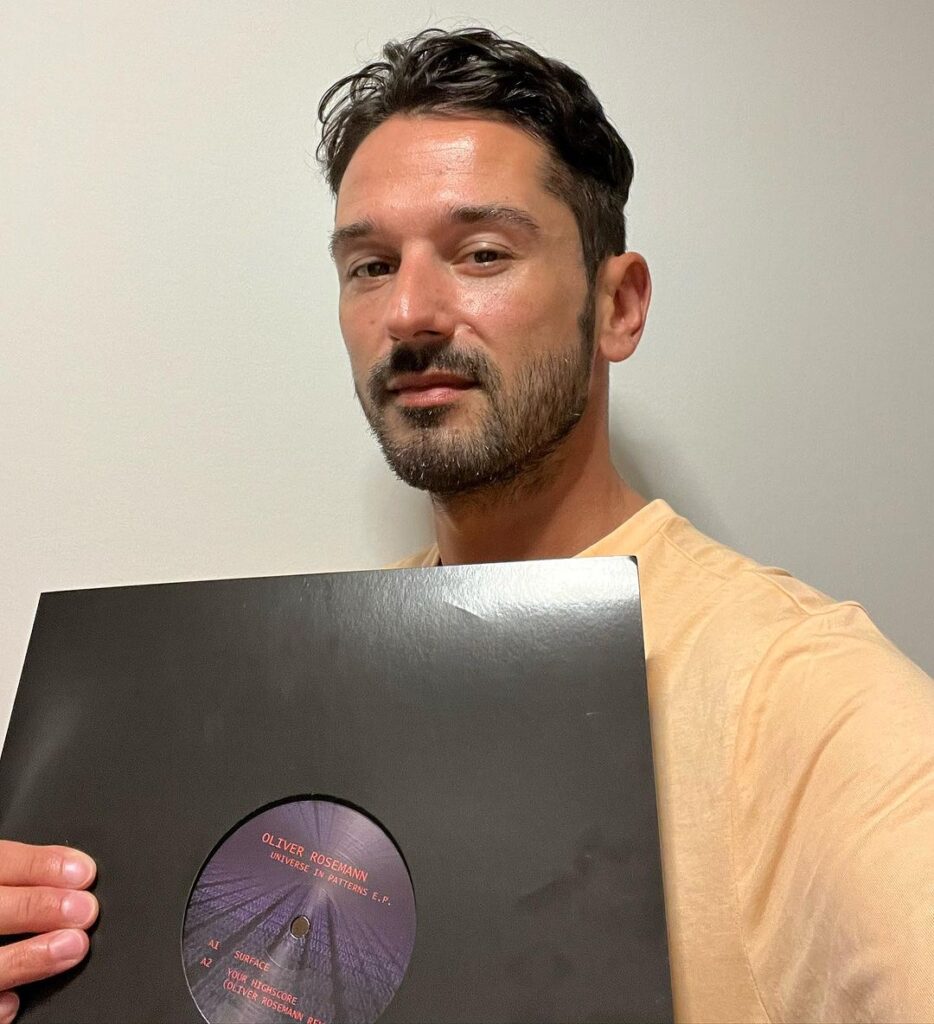
How does your production setup look like? Do you prefer using software, hardware, or a
combination of both? Can you show us your studio and your favourite tools for production?
I use things from both worlds, as I want to explore both. Currently I use the Elektron Digitone, the
SH01a, the Behringer Neutron, the Keystep Pro, the Drumazon 2 as well as the Roland Cloud 909.
Xfer Serum, Massive X and a few more.
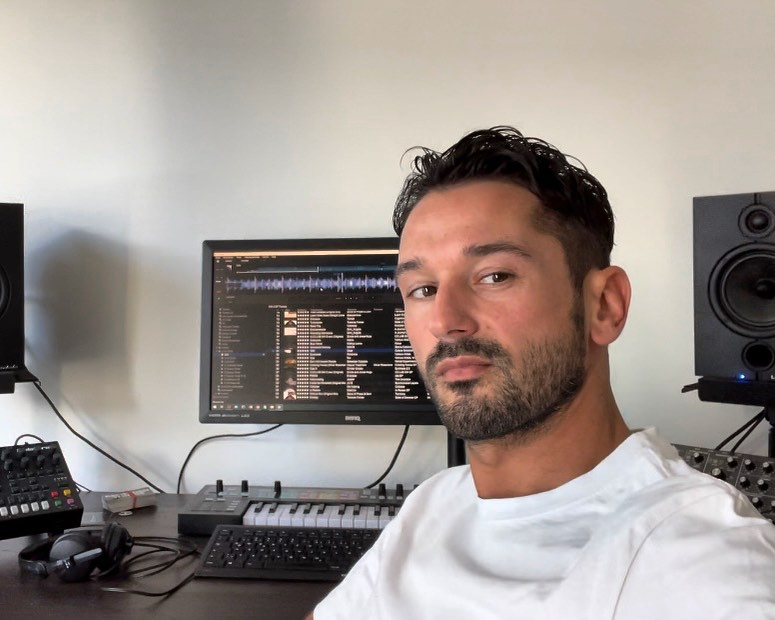
You are playing on a Technokunst event on the 21st of October. What are some of the tracks that
have been staple parts of your sets, that those attending can expect to hear?
Yes, that's right and I'm really looking forward to it. I also like the name "Technokunst", because
Techno is art and should always be!!!
Right now I'm pretty much always playing Animal Noise by Endplate! A monster track. But I also
always play some personal classics from the 90s from my record collection, which I digitized for this.
But what exactly I play, I can't say. I never prepare too much. I have my bag packed and I always let
the vibe in the club guide me, from start to finish.
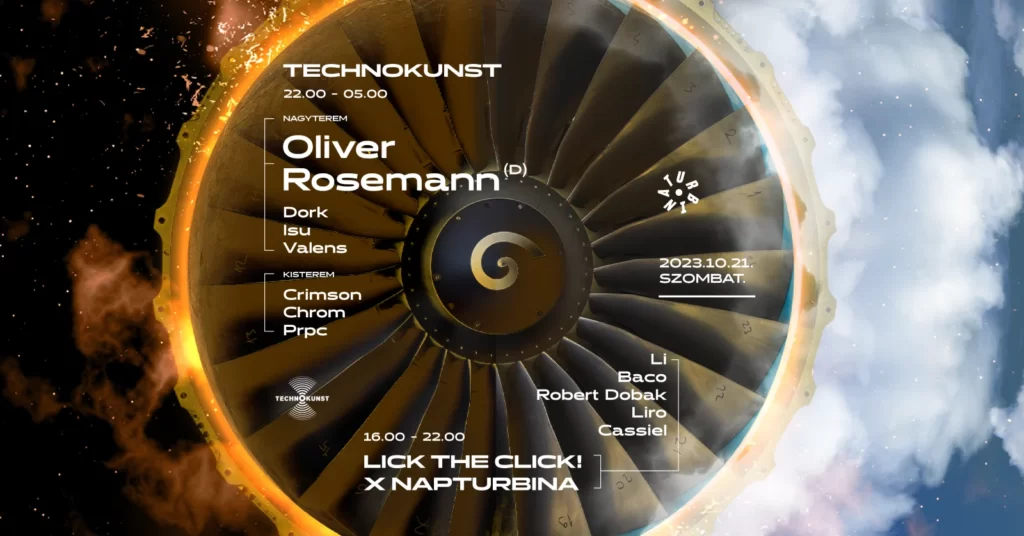
Can you share some of your favourite music, - perhaps not from the realm of Techno - that you
wish readers of this interview heard?
I like many things. One of my own weaknesses is probably to decide for anything. So now after 2
hours of thinking about which song or band to give you, I decided against it. HAHA. I like 90's hip hop,
the raw and dirty style. Also 60’s / 70's psychedelic rock. Would have loved to have been at
Woodstock! Also Nirvana (Now I named a band exactly^^), Roots Reggae and Dub Reggae.
OK 3 Songs are maybe George Harrison - Art of Dying,
The War On Drugs - Come To The City
and
Gravediggaz - 2 Cups Of Blood. I just picked them random from my playlists.
Technokunst asks: Zemög
Hi Zemög, many thanks for accepting this interview request.
To start, lets talk a little bit about your cultural background and upbringing in Colombia. When did you first discover Techno and what prompted you to start music production? Looking at the things you share about yourself, it looks like you spend a lot of time outside in nature. Has this been a vital source of inspiration for you?
I grew up in the middle of a musical family and in an environment that was also somewhat technological. A
music lover father and collector of vinyl records of tango, bolero, salsa and old Latin music; and brothers who
broadened my musical spectrum to rock, pop, hip-hop, and reggae. I learned to play the guitar at the age of 13
and on the other hand there was always a computer in my house, which my mom used for accounting, so from
a very early age I already had DAW programs like FL Studio to make sounds on my own and explore. I entered
to study music production in Manizales and there I discovered electronic music for the first time seeing the
use of turntables to mix music. I became a recurring attendee at Techno events for a few years and that's how my interest to start producing and playing started in 2012.
Without a doubt, nature is a fundamental part of my inspiration when it comes to creating. I try to spend as
much time as possible hiking mountains in my free time or even on touring, so I can get to know the different
natural environments of the cities I travel to play. I am fortunate to live in a highly biodiverse country that has
everything for me to be discovered.
How would you describe your creative process when incorporating tribal elements and nature-leaning
ambience, field recordings, or textures into your music, and what inspired you to merge these together? What emotions or states of mind would you like to convey to your audience through your music?
As I love being in natural environments, I also like to record them, and modify them to my liking, there is nothing more organic than daily listening, of which we are often unaware. That is precisely what I am looking for with the recordings, to give the music I compose a space to experiment with the direct sound of the life I live and the spaces I inhabit. As I am an audiovisual sound director, throughout my career I have collected documentary recordings with indigenous and Afro-Colombian instruments, songs and rituals, environments and Foley elements that continue to build my own library. That closeness that I have developed with my roots has led me to mix it with the music that I make. I don't pay attention to conveying a specific mood when I compose. It will depend many times on my own state of mind and surely that will be what I transmit. But mainly I seek that through repetition, sampling, and hypnosis, the audience feels comfortable and immersed in listening, as well as on the dance floor.
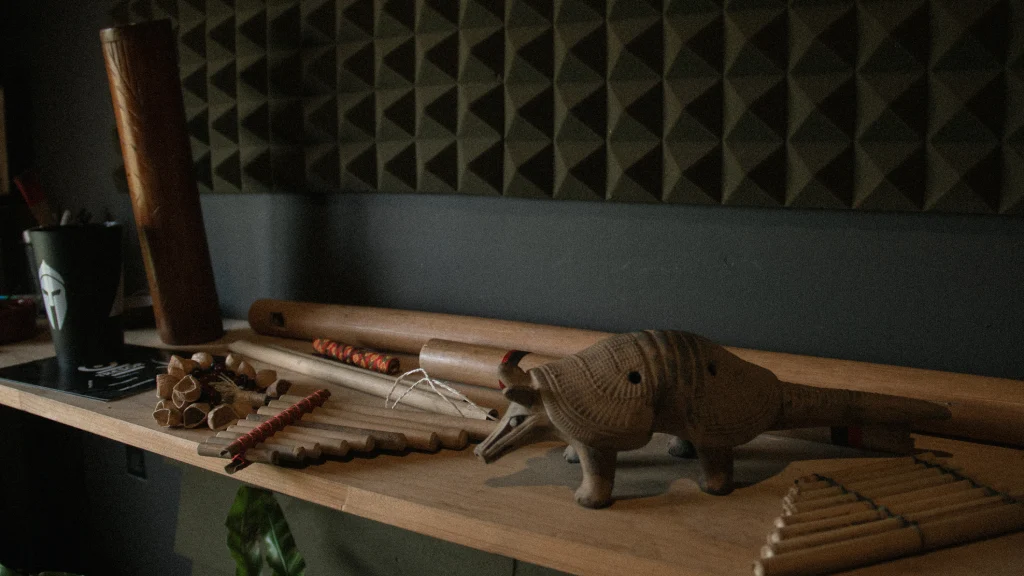
Colombian folk music is very colorful, being influenced by African, Caribbean, Spanish and Indigenous roots. Do you take anything from these traditional genres, have you sourced and sampled any traditional percussive instruments for example?
I feel very identified with the African sound of the Pacific coast and with the indigenous ritual music of
Colombia. Both have a truly inspiring cultural and folkloric wealth. I have played and recorded some favorite
instruments like the Marimba, also called the jungle piano, some Pacific drums, the Guasá and the indigenous
Rattles, and handcrafted wind instruments like the Rucu, made from a type of bamboo that only grows in
Colombia, and the Ocarinas made of clay in the shapes of Shamans, animals and zoomorphic figures.
How is the scene in South America and particularly in your home country, Colombia? How easy is it to release music through traditional channels, such as vinyl records? How is the club scene and how "accessible" is Techno for Colombians?
Releasing music in vinyl format in Colombia is not an easy thing, it is only possible through limited Lathe Cuts.
And it is extremely expensive, plus the very high shipping costs from Colombia. So I don't see it as profitable
right now. But on the other hand, speaking about the club scene in my country, it is possibly the strongest in
all of South America. Techno is accessible to everyone, even with the high costs of producing an event and the
accelerated devaluation of our currency, there are high-quality events, serious promoters and clubs, very good
artists, and audiences that are increasingly educated and devoted to the cause. So I think our scene is
constantly growing, not just in the central cities but in the periphery and small towns.
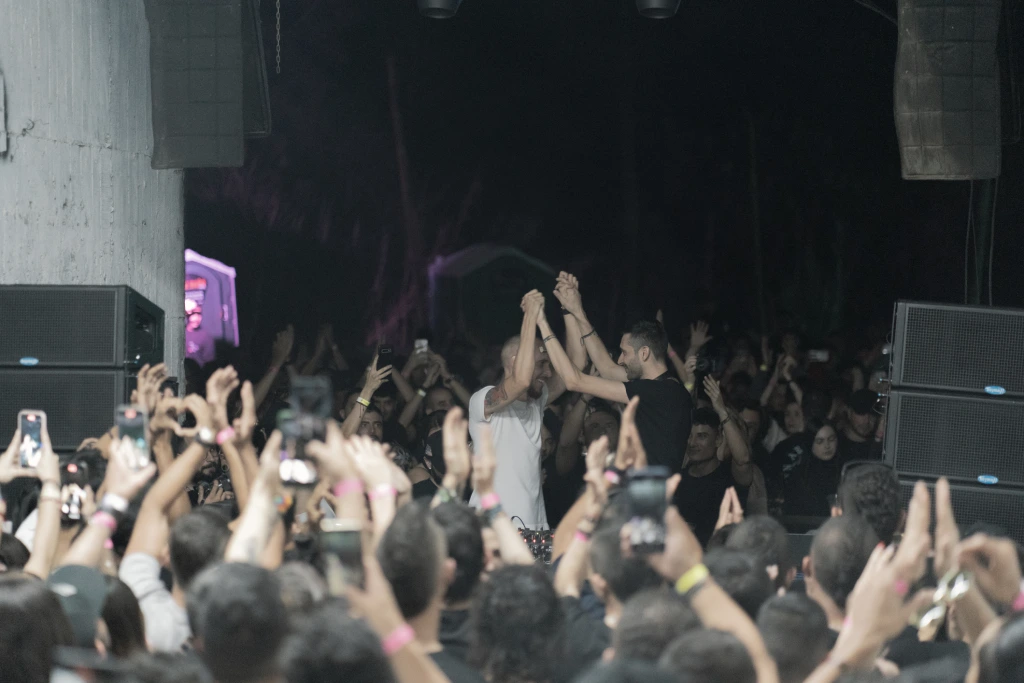
Matteria is a collective union of 5 friends (4 of them are DJs). We founded it in 2018 after having organized events many years before and having our own club. So, it's the result of a lot of learning and a cultivated audience. We have become an important collective for the establishment, development and visibility of club culture in the Eje Cafetero region and throughout Colombia, establishing ourselves in Pereira, a very strong and musically educated city at the Latin American level. We focus on providing the audience with highly sensory experiences through audiovisual experimentation, high-quality sound, and setups inside and outside the club, inviting authentic artists and projects that represent our vision, among which we have been able to have: DJ Nobu, Claudio PRC, Marco Shuttle, Sigha, Rrose, Anthony Linell, Adriana Lopez, among many other artists.
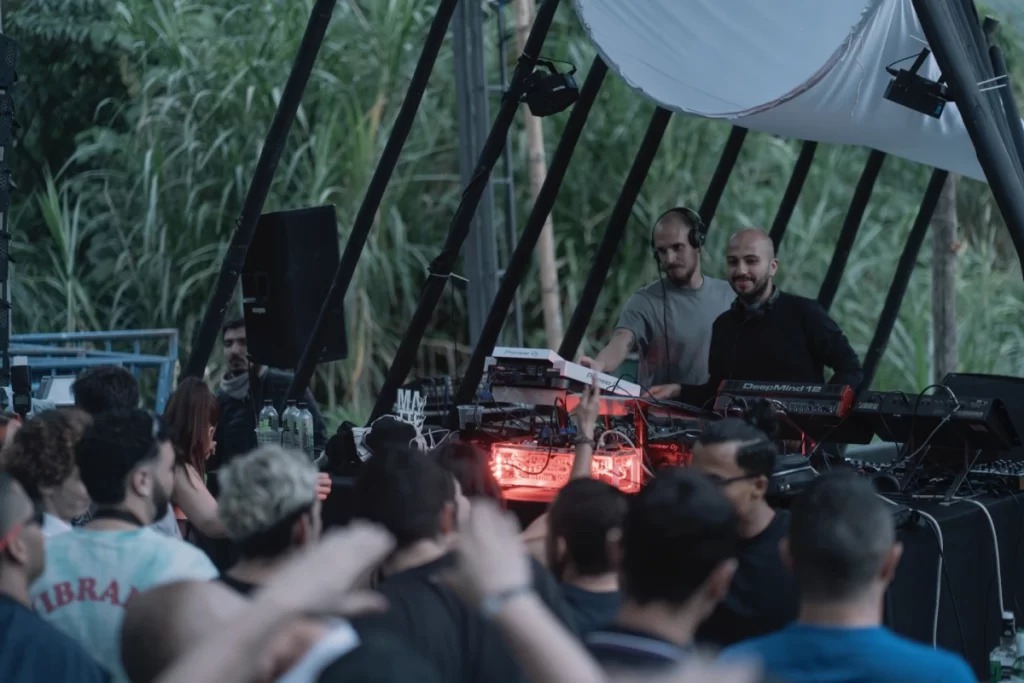
You have launched your own label, Tepuy, releasing on Bandcamp. Interestingly I understand the label is
named after large sandstone plateaus found in South America – hinting at a deep connection with nature?
Beyond a connection with nature, Tepuy is a connection with our first ancestors, they are the oldest mountain
formations in the world, so I feel that they faithfully represent my intention to connect with my roots. I had the
pleasure of hiking and climbing a place of Tepuy in Vichada next to the Orinoco river and that changed my life
forever, it was a very deep connection. I also want the label to be an exhibition of the indigenous arts, cave
paintings, metalwork and architecture that represent the ancestral cultures of Colombia.
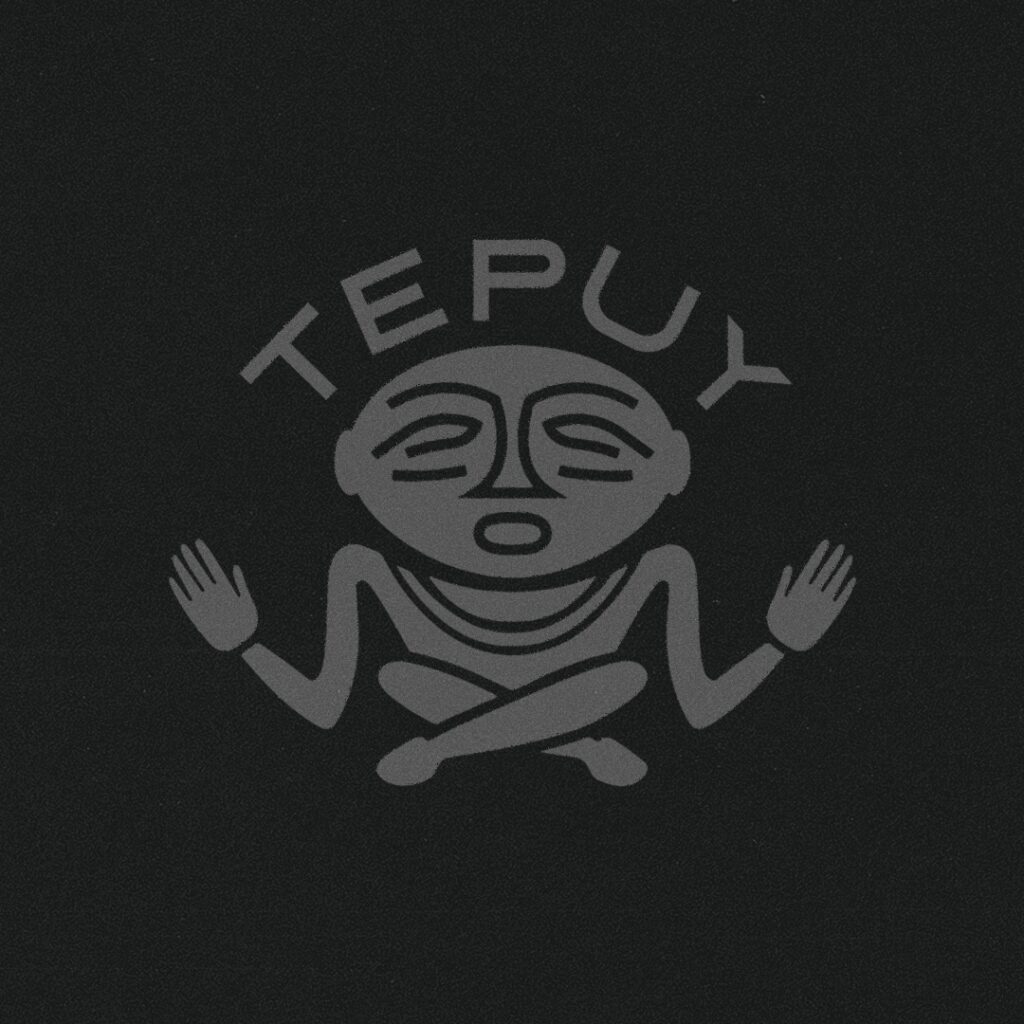
Did you have your records pressed in Europe or were you able to get everything done in South America? How has Bandcamp as a platform worked for you so far?
The vinyls of the first release were made in Medellín and were limited copies. But the idea with the second release is to be pressed in Europe. Bandcamp has been a great help for the exposure and sales of the label. It has worked incredibly well and the label has been very well received around the world. I am happy that there is a platform like Bandcamp where it allows you to be an independent artist or label having complete control of your moves.
What is the label "ethos" of Tepuy and what are your plans for the releases? Is it your own creative outlet or do you plan on releasing music from other producers?
I plan for the first few releases to be just own releases with remixes from my favorite artists. In this way I feel that I can express the whole concept and aesthetics of the label more precisely . Then I want to do some VA, mainly to help indigenous peoples and poor communities in Colombia. There will also be some releases from other artists in the future.
Your new release on our good friend Daniel Danieli's Whispering Signals label is just out now. Can you tell us a little bit about this record?
This release has been composed over the last 2 years. Time where I met Daniel and we connected very well
musically. When I sent him the tracks, he was delighted and invited me to be part of his label. The sound aesthetic of this EP is deep, minimalist, tribal and some meditative, with the intention of taking the audience to a state of contemplation. It was also very important for me to have been in charge of the cover art design, where I was able to visually connect the intentions of the release and the aesthetics of the Whispering Signals label. On the other hand I am delighted that Neel has been the mastering engineer, since I admire his work and his project very much.
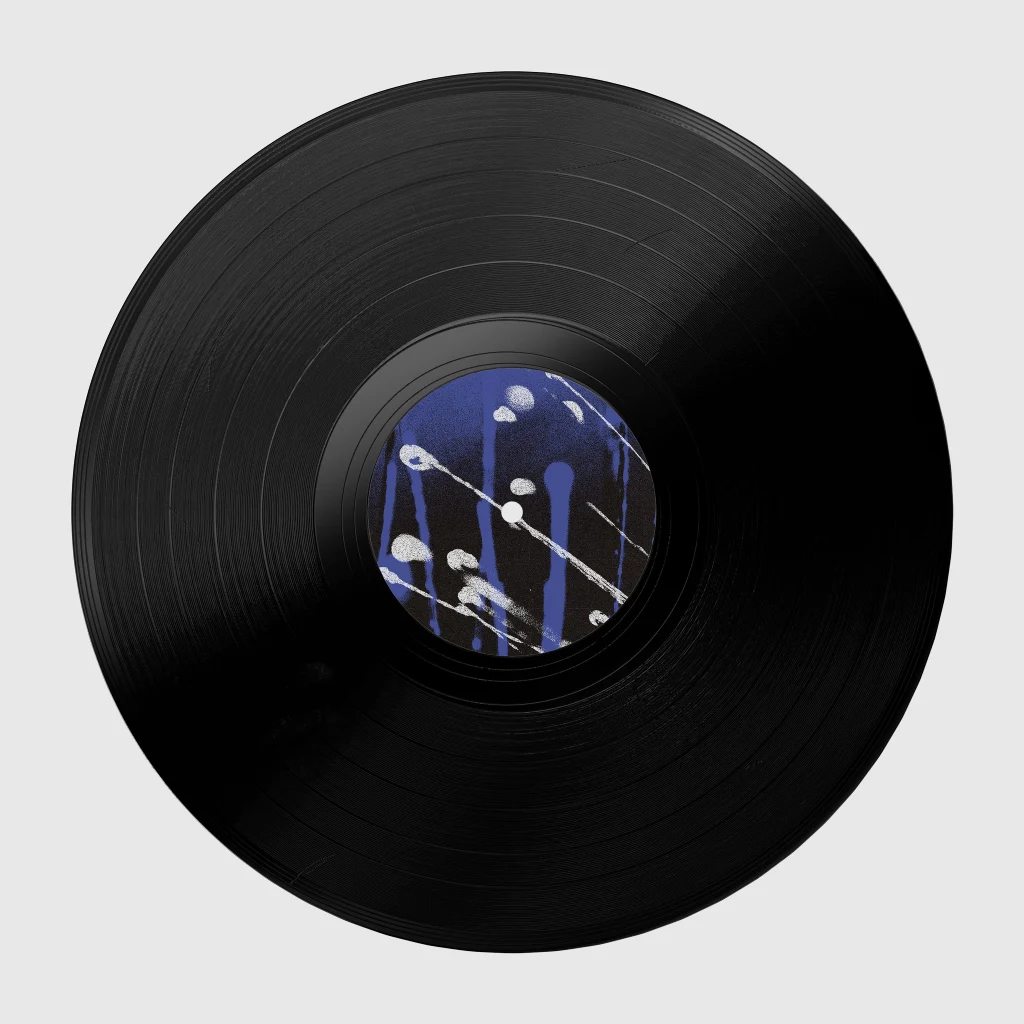
How do you prepare for a live set? What equipment do you use? Do you pre-compile stems of tracks or is it a completely open arrangement of instruments and you build the music on the fly?
It's funny, but I've only played once live and that was when I founded the Zemög project. But now I'm working to
do a live act, possibly this year it will come out. I plan that it will only be for very special occasions, where it is really worth showing myself in this format. To make Live I don't plan to go out with a lot of hardware, I feel that with the computer and the right instruments you can do enough, I am a faithful believer that less is more. As for the way I play it, I like the idea of pre-recording samples and stems to have a basic order at different moments of the act and showcase some of my own productions, but I also love the idea of building music on the fly. So I guess I don't limit myself, as long as the music sounds the way I want it to sound.
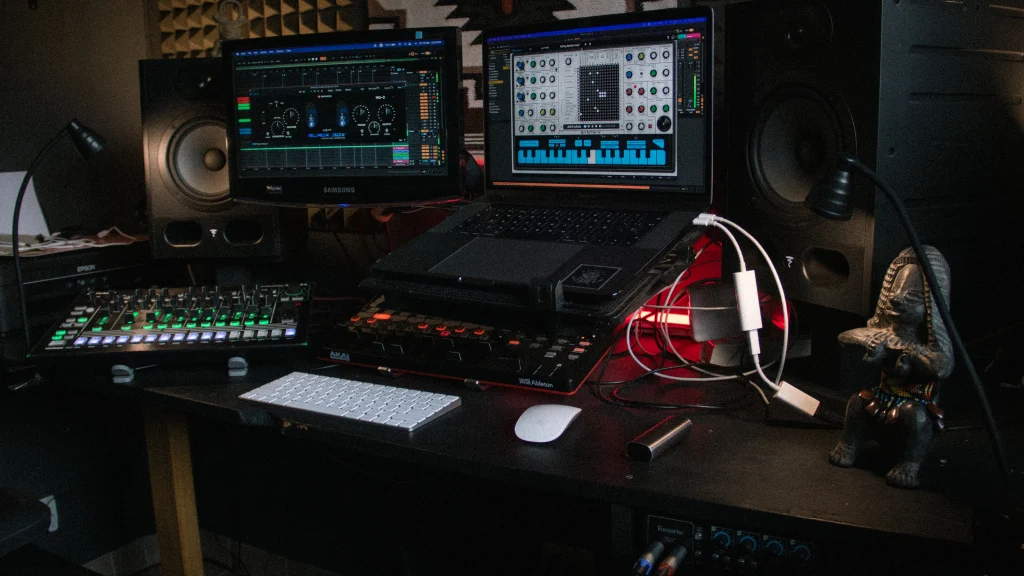
We know you are also playing vinyl sets. Has this physical carrying medium played an important role in your discovery of music or in the way you interface with it as a DJ? Do you primarily think of yourself as more of a DJ and selector or more of a producer with the added ability of playing your productions for audiences?
Collecting and playing vinyl changes a lot of the rules in the way you consume music and art. When I buy a
vinyl I not only buy it for its music, but also often for the art of its covers, sometimes there are vinyls that I
only buy to listen to at home, I like the idea of putting on a vinyl and listening to it completely from side to side
side, appreciating every detail, something that does not happen with digital music, which most of the time you
don’t listen to an entire track. When you play on vinyl, you just play differently, you think faster, you have to
be more focused, it takes you much longer to select and you have to make the mix faster and more dynamic.
So you have to put all your skills as a DJ, however, in Colombia it is not much appreciated that you play in this
format, so I don’t do it very often in events here.
Although I spend a lot of time producing and developing my own sound, I consider myself more of a DJ and
selector. It is what I have been doing for more than a decade and what I feel most comfortable with to convey
my message in any slot of an event. I love exploring music every day, keep seeking what artists and labels are
putting out, and finding a place for it in my library.
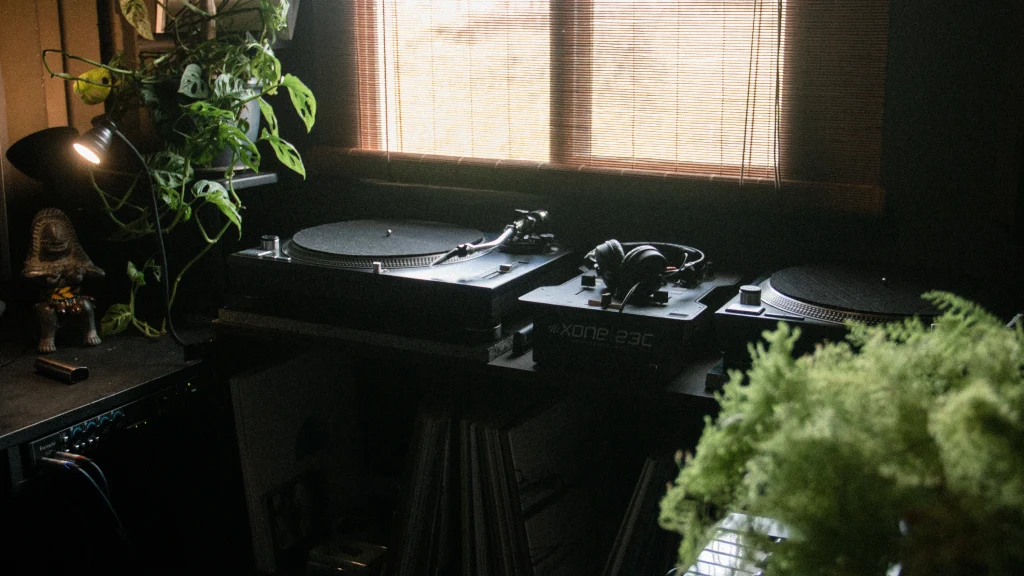
Care to show us your studio and talk us through your production workflow? Do you use any hardware synths or effects?
I don't have a lot of hardware in my studio, a Novation Peak synthesizer, an Akai APC40 II controller, a TR-8, an old5 octave controller piano and a Focusrite Safire Pro 26, I use some plugins that among my favorites are the Reaktor libraries and Kontakt, the Buchla. I also tend to process the signals a lot with filters and modulators like the Hypnus Slink, tube saturators like the Black Box and effects like U-He and Waves, and of course the typical reverbs and delays. All executed in Ableton Live. In addition to that, there are the field recordings, acoustic instruments and Foley that I process through the same effects system. Although I like to structure my compositions and know exactly what I'm doing, I also like to improvise by manipulating functions and letting it flow, so I feel free when composing and finalizing a project.
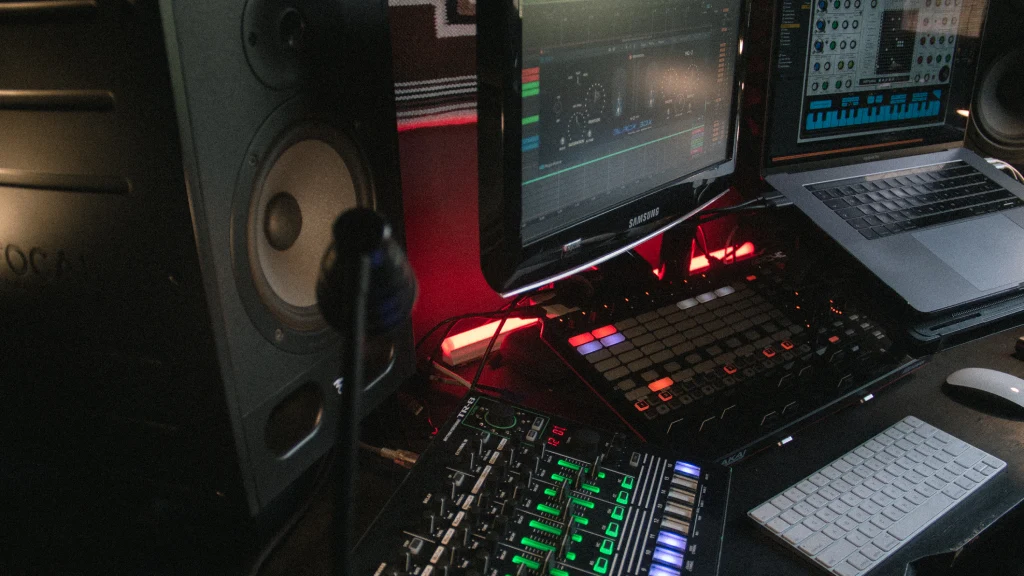
Can you tell us about your plans for 2023 and the releases you have lined up?
This year I hopefully plan to do my first tour in Europe. Maybe for the summer, but that is still to be defined. As for releases, after this EP on Whispering Signals, comes my first full length Album on a label that I admire a lot and feel in complete connection with my music, a project that i have dedicated most of my time in the studio in the last few months and I hope to finish very soon. Some other remixes and VA on 12” are coming too. These are busy times in the studio. On the other hand, I am also part of the hosting of events with Matteria, one of the most respected collectives in Colombia, and this year is undoubtedly one that brings very enriching experiences to our scene and I am very happy for what is to come.
Finally, can you share with us some of the music that inspired you the most and that you would like readers of this interview to listen to?
I personally enjoy listening to full albums. I feel that most of them are very personal works, more
accomplished and that perfectly describe an artist's state of mind or aesthetics. So I'm going to recommend 3
of my favorite albums, which have taken me to unique states.
The first would be Voices From The Lake - Voices From The Lake, a true jewel of deep acid, repetitive and
ritualistic. A masterpiece published in 2012 by my favorite artist Donato Dozzy and Neel.
The second would be Wanderwelle - Gathering of the Ancient Spirits, the sweet spot of deep, melancholic and tribal shamanism. Released in 2018 by Silent Season and composed by the talented dutch duo. Its cover is a beautiful illustration that immerses us literally in a hidden island with ancestral spirits.
The third would be my favorite album of experimental music, Midori Takada - Through The Looking Glass. It's
never enough every time I listen to this album. It's just perfect. The most impressive thing is that it was
composed in 1983 with a sound architecture ahead of its time. I would describe it as full instrumental
harmony with a very high level of creative improvisation. Composed by the amazing Japanese percussionist,
using marimbas, gongs, bells, flutes, and Coca-Cola bottles that were blown as flutes. The illustration of its
surreal cover is not less important at all.
Technokunst asks: Ness
Hi Andrea, thank you for accepting this interview request.
I would like to start with your youth and how you got in touch with electronic music in general. What were the initial influences that shaped your taste? What were you looking for in music and what grabbed your attention the most? Has Trance music been a deep inspiration for you?
From early childhood through a computer that my father brought home in 1985, I got inspired by the 8-bit sounds. Then when I was a teenager, I was mostly listening to pop or to dance music and later to trance, progressive and electro. During that phase of my life, I wasn’t even thinking of DJ-ing, but I think danceable music in general is the one that grabbed my attention the most. With Trance I explored DJ-ing in the beginning of my journey, losing interest a few years after due to the different approach in technique that Techno had to offer for a DJ, which ultimately made it more interesting to me.
How have you shifted towards Techno, and specifically a type of Techno that brought over elements from Trance music?
It was about the sound and the approach to DJ-ing, as stated before, I believe the aesthetic of Techno became more appealing to me than any other genre. In music production there’s a wide spectrum to explore, I believe that contaminations make music evolve, it’s happening all the time. Bringing in my music some elements from Trance came quite spontaneously to me, specifically the psychedelic ones.
What came first, DJ-ing or production? What prompted the idea to produce your own material? How would you actually define the type of sound you are going for?
I started with DJ-ing, vinyls and CDs, music production came few years later. The idea of playing my own music still excites me these days, so that was a good drive back then too. It’s hard to restrain in one or two words the type of music I’m willing to produce or play, so I would say that among the other things I look for when I’m creating are depth and tension, but also playfulness and drama, these are moods / emotions. If we are going to shrink it into few genres the boundaries are staying within the realm of Techno, Trance and Dub music.
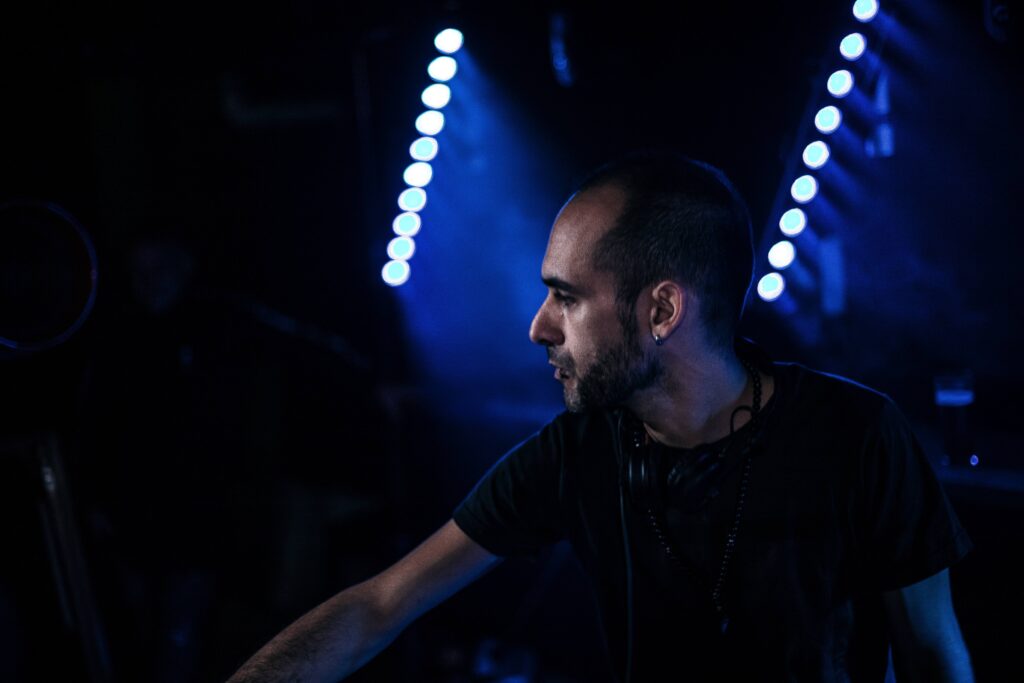
How did you get to opening your record store in Sardinia and how did you manage with it?
The record store was one of my little dreams that turned out in a little nightmare, despite all the enthusiasm of my youth I was honestly unprepared to manage it. The conditions we operated in Sardinia weren’t of any help, also the worldwide crisis of 2007 just kicked off. Looking back to it I never regret the experience it brought with, the business didn’t go well, but there was a lot to learn from and I keep in my mind many joyful and funny moments as well.
My understanding is that you are now in charge of managing the TGP label. What are your plans with it going forward? Are you going to continue pushing vinyl releases?
Yes, I keep things going on TGP and I have 2 upcoming vinyl records on the line. I may be quite slow with releases but the label is staying active in its own time.
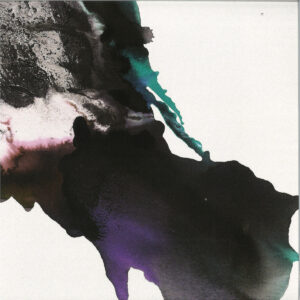
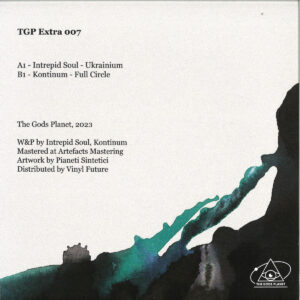
Who do you find to be exciting acts in the world of Techno right now? Are there any inspirational artists or labels you completely trust?
I have some personal favourite of mine but no one to mention, it’s not nice to leave someone out of the list :-)
Can you please tell us about your move to the off-the-grid location in Bulgaria and what life is like there? Does the closeness of nature provide a huge boost to your production capabilities?
It’s not exactly off-the-grid, I live in the mountains but I’m relatively close to the city centre and the airport within 30 minute drive, the choice of such a location was not really for boosting my production rather to have a different life experience, closeness to nature feels good for me now.
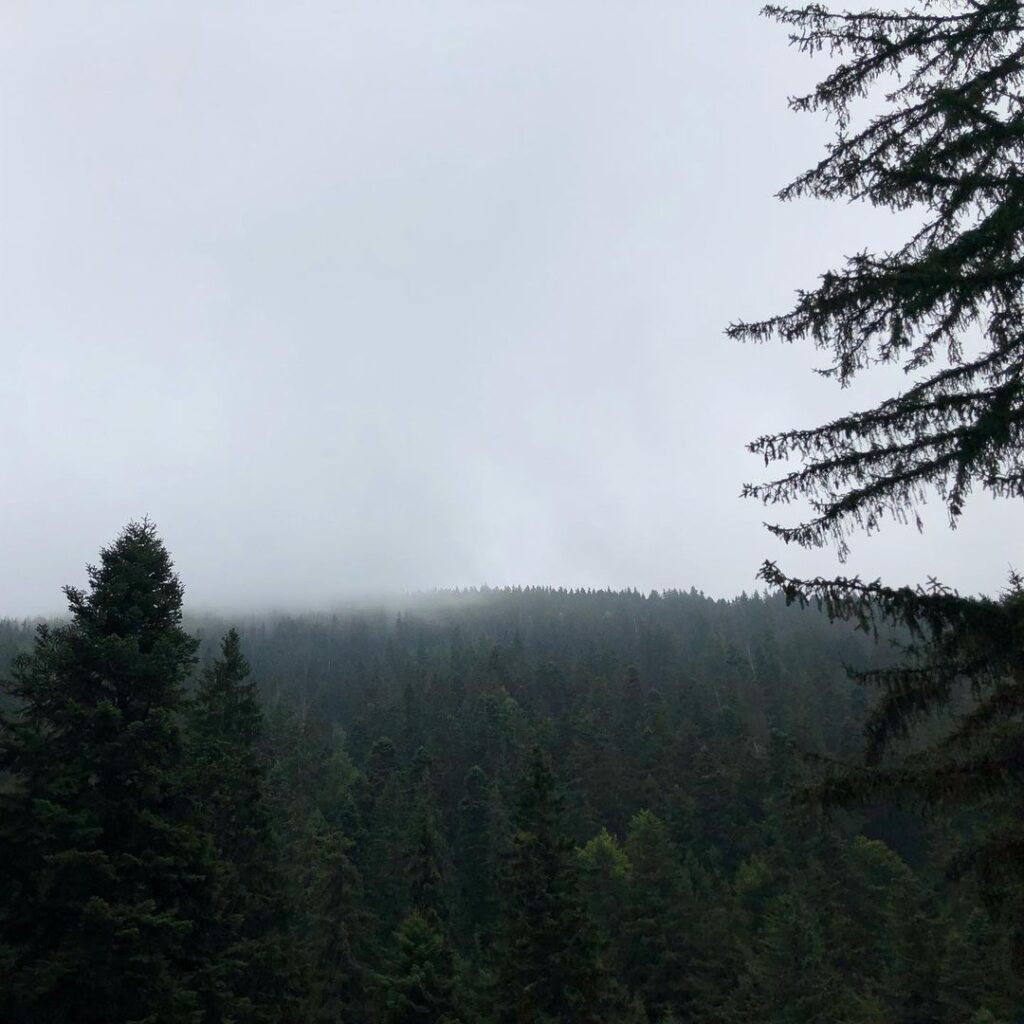
Can you talk a little bit about your music production process? Care to show us some of your favourite equipment, and talk us through your workflow?
My music productions are based on jamming with the machines, then sitting down to record them and arrange what I have so far. The entire process can take from hours to weeks until I’m satisfied with the material I have. As piece of equipment, I love the Elektron Analog RYTM, I’ve been doing the majority of my drums with it.
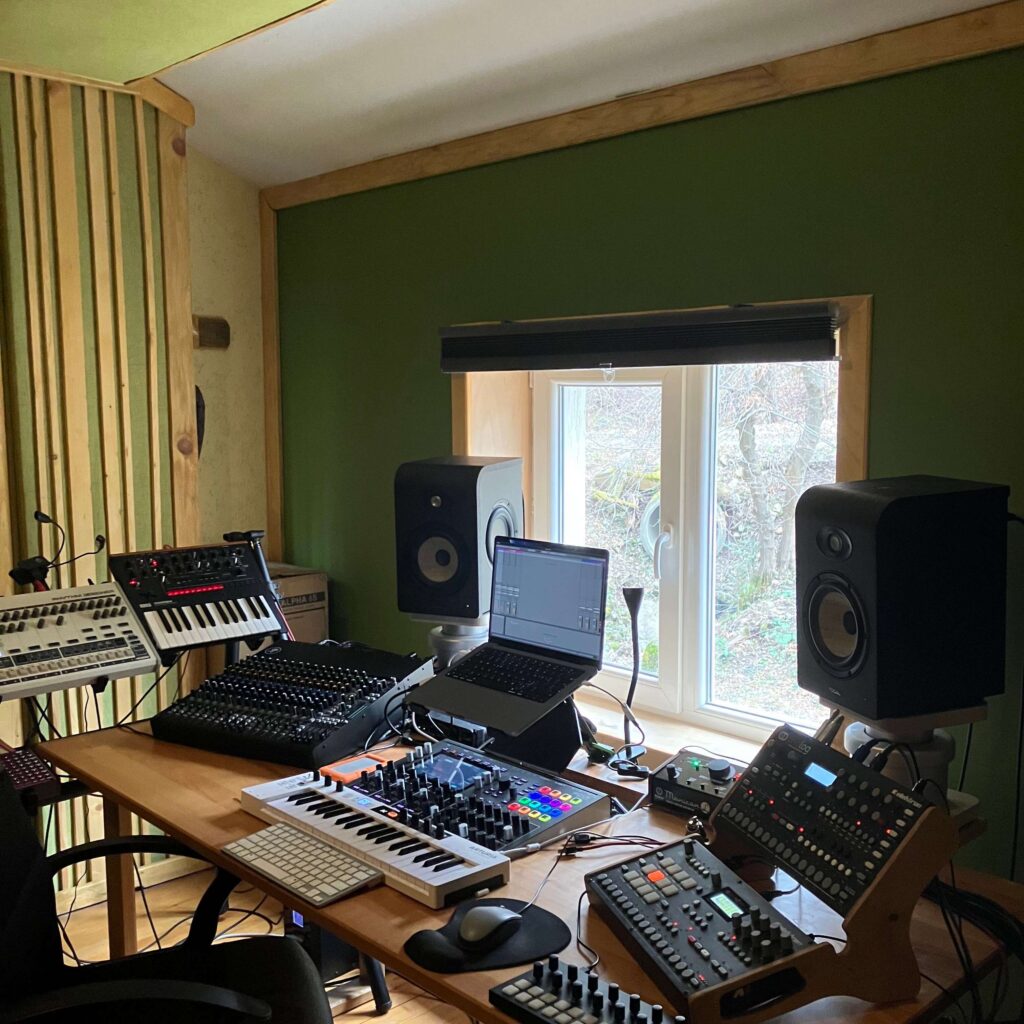
How is your schedule for 2023? Do you have a lot of releases lined up?
I have several remixes and single tracks upcoming on different labels, also I’m working to release a special record on TGP in combination with LDG (Japan)
Would you share with us a few of your favourite tracks or albums, music that you would like readers to hear?
The Source Experience - Different Journeys
Dj Metatron - Loops Of Infinity (A Rave Love Letter)
L.B. Dub Corp - Take It Down (In Dub)
Atom TM - Cold Memories
Leandro Fresco & Rafael Anton Irisarri - La Equidistancia
Technokunst asks: Stojche
Hi Stojche brat, thanks for answering our questions! We were super stoked about your performance at Alkototabor, loved the work and energy you put into the vinyl-only set. What is it that got you stuck DJing with physical records?
Thank you for your kind words man. I really enjoyed Alkototabor by any means. The festival, the production, the crowd, and the technical setup. Playing records without any stress especially at festivals is super rare nowadays. So, big shout to the Alkototabor team for the incredible production. I still stick only to vinyl records for many reasons. I'm gonna mention a few. When I started collecting records at the very beginning of my DJ career, I felt in unconditional love with the vinyl as a product. In terms of sound quality, records are still supreme when compared with the rest of the sound carriers. Up to date, vinyl records cannot be separated from the roots of the culture we represent. It's the perfect opportunity for any independent record label or solo artist to showcase their art from various aspects. I prefer the idea when you are challenged by the audience on a particular night, when you don't know what's your first and what's your last track, instead of coming down with preprogrammed narratives and sounding a bit predictable. I don't have anything against the CDJ's . I witnessed many DJs killing it with the CDJs or with Laptops, there are a lot of talented DJs out there. Performing with vinyl records is just my own personal choice, and everyone is entitled to their own choice, therefore nobody should be criticized for what sound carrier they use. At the end of the day, I really think it doesn’t matter which sound carrier you use, for most of the audience all that matters is the music that comes out of the speakers. I have tried the CDJs, Seratos etc....That's just not for me. All these syncing, looping functions and the element of predictability where you are able to sync in 4 CDJs together and present it as a skill, doesn't excite me much . I choose vinyl because I like a little bit of reality, sonic and extra dynamics to remain there. I simply refuse to be on autopilot or to perform in ''Safe Mode''. There is also a nostalgic or emotive element to it, I clearly remember what record I bought in Manchester, what record I bought in Amsterdam, Brisbane, Paris etc. It's simply an unbreakable relationship where somehow vinyl records remained part of who I am and what I stand for.
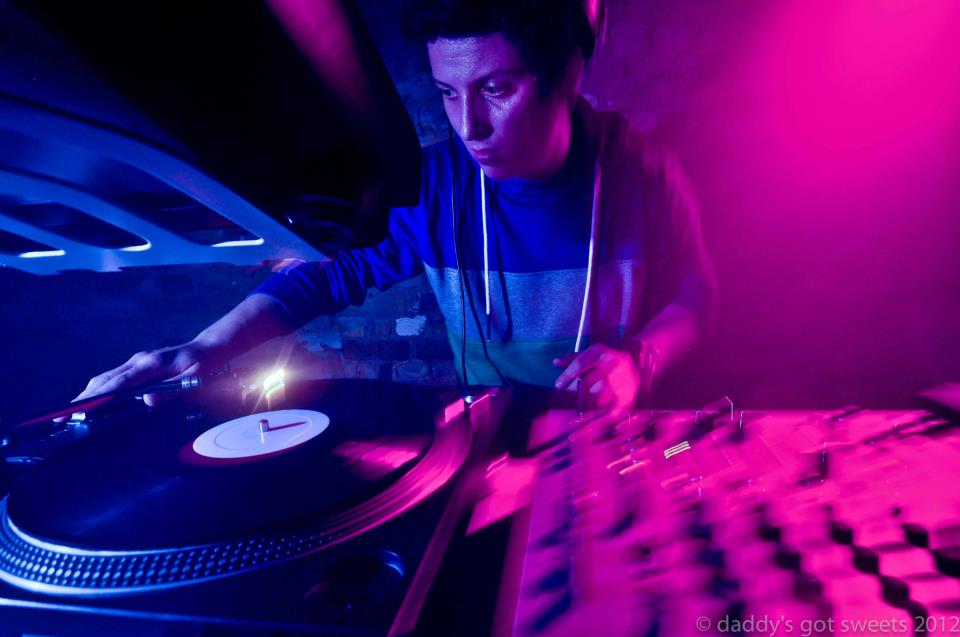
When we heard your set, you played this really classic sounding Detroit schooled techno with dub leaning aesthetics. Do you think this timeless sound is about to resurge on the floor?
It seems like it. The classic 90's techno funk it's still so inspirational to me. I'm happy to see that a lot of younger artists are rediscovering the essence. I'm pretty sure we're gonna witness a new generation that will bring excitement and preserve the fundamental aesthetics of techno music. Generally, I'm not too obsessed about what sound is trendy on the charts at the minute because cycles in dance music come and go. I would always pick records with pure and original character rather than records that try to fit a particular cycle in music. Music that has already passed the test of time and remained relevant all these years shows me that if the emphasis is on the actual music instead of trying to fit in a particular trend, you're gonna remain relevant as long as your music does. People always have a tendency to recognize originality, honesty and certain sentiment. If you stay true to yourself and what you believe in, somebody out there will recognize that 100% !!!
As someone with a Macedonian upbringing, I can imagine how hard it must have been to get good records back in the day. How did you manage to get records in?
At the beginning it was a difficult task. If some of my parents or family members, even friends, traveled abroad, they were ordered to do me a voluntary favor and visit a particular record shop and ask for the records i wrote on a note :). If I knew that I could get a new Purpose Maker, new Steve Rachmad or The Advent release, I would just buy it straight away without a need to listen to any preview. There were few record shops that popped up in Skopje, limited stock but places where you come out with a solid dig. When big retailers like Juno Records came up on the market and started shipping worldwide, buying vinyl became easy and mostly done online. All you needed was a loaded credit card :) So yeah, when you compare it to nowadays, everything is so much easier. I still get that childhood excitement in me when the postman rings the doorbell to deliver my records.
Can you talk a little bit about nightlife in Skopje? How is the city fairing from a club and events standpoint? How have things evolved from the hotbed era of the 90’s?
I think the city is doing pretty well in terms of clubbing. For a city of 1 million people, we have a decent amount of clubs and an event program that definitely puts Skopje on the clubbing map. Every weekend there is something going on, clubs like Epicentar, 1212, Minus 1 or Stanica 26 host many internationals alongside the local names. There are few festivals, cultural events like Skopje Vinyl Convention, the Youth Cultural Center is an amazing event location that offers its spaces for many events and concerts, so I’m actually proud to come from a city that has so much passion for this underground culture and scene that existed since the beginning of the 90's.
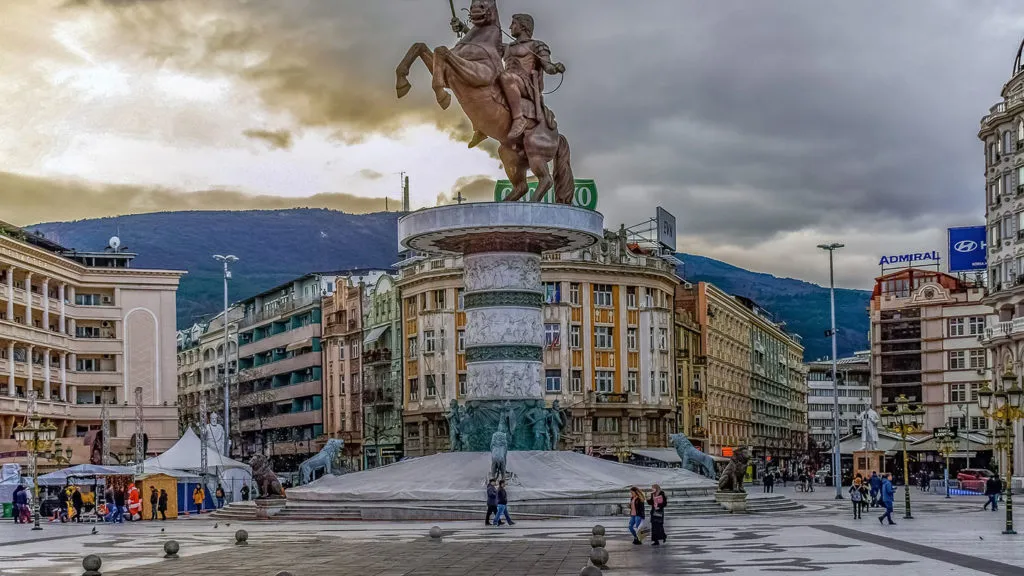
You work at a Latitude record store in Berlin so I’m sure a ton of vinyl goes through your hands every single day. Do you still have items left on your Discogs wantlist :)? Does your daily routine at the store add to your sets or selection in any way? For example, by chatting with people and perhaps noticing stuff you otherwise wouldn’t know about?
I try to reduce my Discogs wantlist but the problem is that my appetite for 70's Roots, Dub & Reggae just doesn't go away :). Ordering records for me is like a daily medicine. On another hand, working for a record store is a blessing. You are constantly surrounded by music and a lot of enthusiastic people, so It's work and joy . Yes, hundreds of records go through my hands daily and it's really exciting when you accidentally discover jams that you had no prior idea they existed. My colleagues at work are also pretty passionate vinyl heads, so I feel privileged to be there, but the disadvantage of working in a record shop is that a big portion of my salary simply goes back to where it came from. It's inevitable. At Latitude Records, there are a variety of genre sections, we do in-store sessions on a monthly basis, and our role is to satisfy the demand for most of the genres and for the majority that come at the shop. Customers often ask for recommendations, then you try to nail what they look for. When someone tells me "Stojche thank you so much for the recommendation", I leave work with a happy face.
How are things going with your label, Tangible Assets? In a way records are the most tangible assets in music reproduction, is this the thought behind the name, and if not, can you please elaborate a little bit on it? How did the output of the label change over time and what direction are you planning on going with it?
You got it :)))))))) Yes, Tangible Assets as a record label name, came directly from that narrative. I wanted to give back something to the scene that I've taken so much from. Launching Tangible Assets is the best decision I have made for myself. A record label that gives me the complete freedom to release whatever I want. I still stand strongly behind the idea. Tangible Assets is just a personal statement. It doesn't limit me to release anything from techno, electro, house or even dub. That was all I needed to be able to completely express my emotions on a piece of vinyl. FREEDOM!!! For me personally, music is such a broad field, so I was never up for the idea to start any subdivisions of the label but rather to showcase all my major influences under one roof. I'm not planning to change in any direction, I think that consistency in anything you believe in is really important. I must send a big shout to Syncrophone distribution, who have been my reliable partner since the start of the label. As you can notice, the output of releases is not oversaturated, there is no time pressure, because I like to have some breathing space between releases. I'm trying to allocate time for Tangible Assets and also to meet the contractual agreements with other labels.
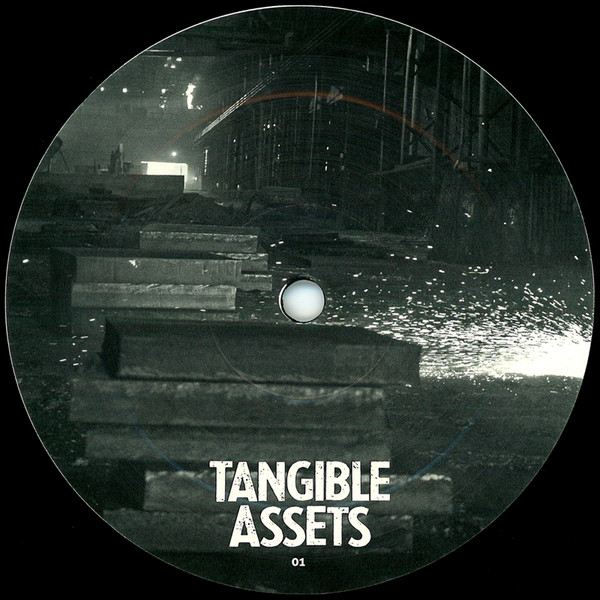
Talking a little bit about production – how did you start things initially? Are you a hardware guy? What is your workflow like? Can you show us your favorite studio gear?
Yes, I use both hardware and software. I never start track the same way. It's usually jamming, trying to come up with some hook to display the main element of the track. I usually record 4 up to 6 minutes takes from an instrument, then chop beats & pieces at later stage during the arrangement. Usually, the main idea is recorded and arranged within few hours. Mixing and gluing everything together comes after. Sometimes i would start jamming on the drum machine and record just a rhythm track. On another occasion i would start mixing the audio while recoding it. The process changes all the time. Having fun in the studio is really important and I always try to keep the process fresh and listen to what my musical instincts tell me. I love going to the studio after playing a gig. I think that is when the best ideas come out. Maybe due to inspiration overload. This bad boy "Electrix Filter Factory" analogue filter is present in 100% of my tracks. Try it out, it was a game changer for me.
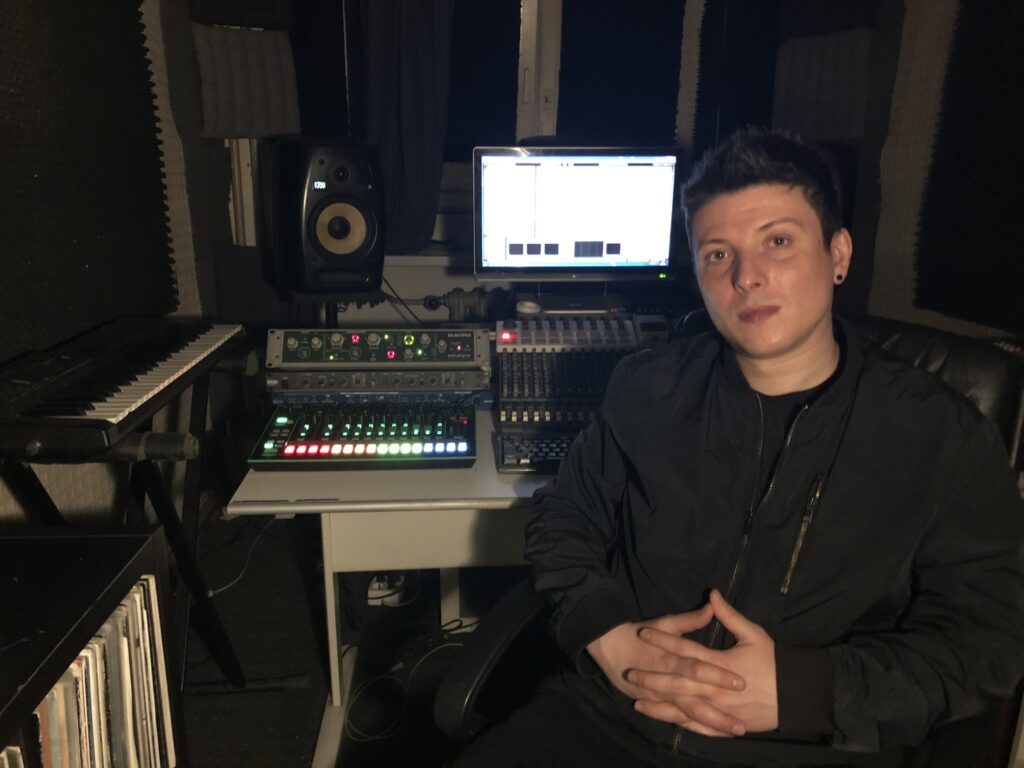
Can you tell us a little bit about the releases you have lined up for 2023?
The release schedule for 2023 looks pretty busy. 3 EP's , 3 remixes, I have also contributed a track for a pretty heavy 3 x 12" compilation, that is what's confirmed by now. Potentially a 4th EP but it's a little bit uncertain whether it's gonna come out next year due to long que in the pressing plants. So yeah, let's rock n roll 2023 !!! :))))
I always ask our interviewees for some of their defining moments in music. Care to share some of your favorite albums or singles?
Hearing Derrick May on the beach in Ohrid, Macedonia opened my world to the real underground techno music, then hearing the likes of Deetron, Ben Sims, Claude Young, the older version of Marco Carola, inspired another perception of DJing as an artform. Their selection, skill, sharpness and depth in the mixes was undeniable magic and it was my guideline. As for tracks that inspired me throughout my life - I will give you a few:
Tobias Von Hofsten - Swinger (Mechanism Industries) 2001
Dark Comedy - The Bar (Elypsia ) 1996
Carl Craig - 'Wonderful Life' from the album 'Landcrusing' (Blanco y Negro) 1995
Hardcell & Grindvik - Outline (Joel Mull September Leaf Mix) 2003
Technokunst asks: Volster
Hey Marko, thank you so much for talking to us!
I would like to go back in time a bit and ask about your past. Your path on Techno music seems to be really interesting, given that you are from Croatia, where - similarly to Hungary, the scene was not always a given.
How did you end up listening to Techno and what are some of the initial influences that shaped your taste in music?
My first introduction to Techno music happened way back in 1999. It was through a local event organized by one of the beat DJs and promoters from Osijek, DJ Sly. And as a matter of fact, underground subculture of every kind at that time had quite a support from the city officials and this event was no exception. So, through my high-school teacher that also was my drama class teacher I managed to get tickets for the event as we did a lot of performances for city council too. So that was a very interesting way of getting into techno music I always thought. That drama class really paid off, haha.
When did you start DJing and producing? Have you had any help in the process? What are your preferences while playing? A more intimate club setting, or larger venues and festivals?
Not long after just attending events, someone from my friends got some turntables and couple of house records. So, we kinda mixed with those for a while until I got couple of techno records bought for me from Vienna I think. Some friend of a friend went there regularly for shopping and so I put up some $ upfront and asked to get something good. I didn’t know what I’m going to get and it was a pure luck to get Oliver Ho – Mutate and Survive and couple of Primeval records. It was all very naïve, almost ignorant but very fun.
After that I mostly started playing in clubs, few open airs but not much of the festivals at first, mainly because they weren’t so predominant in my area at those times. So that shaped me mainly as a club dj and I will always be faithful to the club dancefloor.
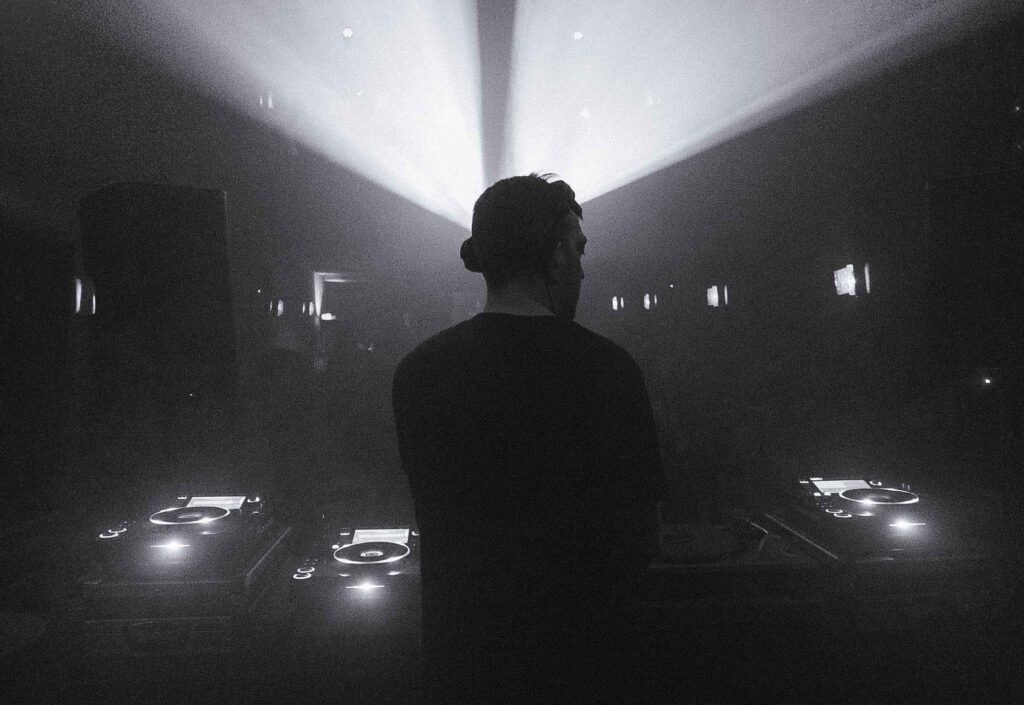
You have not only been producing, but also promoting. You have your own series “Traum” you were running together with your colleagues in your hometown, Osijek.
How did you end up promoting, and what are some of the hardships you’ve had to live through while doing the events?
The idea of promoting came just from necessity. We wanted to do things we enjoyed while visiting many European cities, mainly Berlin, over the years. So, we premiered over the years a lot of underground artists from Paula Temple, DJ Deep, Etapp Kyle, Antigone, Amotik, Lewis Fautzi, Anthony Linell etc... It wasn’t easy at first but eventually we got the trust from the audience. Unfortunately, Covid - like everywhere, made unrepairable damages and most things seem like they are one square one. Just like with TRAUM series, at the moment it’s on a hiatus and who knows if it’s ever gonna be back and in what form.
It seems that the recent resurge of the ‘90s trance sound has not made a mark on your output. What do you think about the global state of affairs of Techno at the moment?
Well funny thing is that first event I attended was named something like Techno vs Trance, so I was exposed to that Trance sound at the start and I kinda get why it’s getting popular again. It’s an easy way in for people to get into electronic music and partying in general. It’s all very cyclical and best music is always made and listened in those mid points, in those small windows when things are just about to blow up and before it gets so popularised that you need all sorts of gimmicks to get more and more people into this machine that is supposed to be underground electronic music.
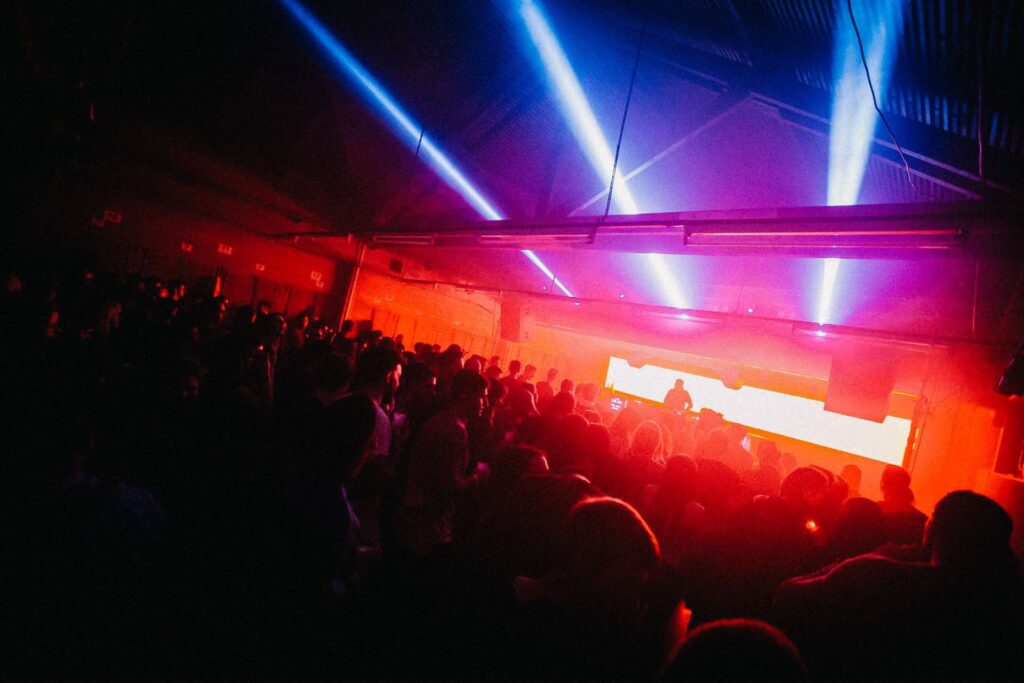
Let’s talk about your label, Secession. You seem to be really active with it on Bandcamp. At the same time, you have already released three 12” vinyl EPs. What is the thought behind the aesthetic of the label and what are your plans with it? Having your own label means you get to curate your output. Do you have a strict direction in mind? How about the other label you were affiliated with - Out Of Place?
Out Of Place is the first label I started with my ex-partner Insolate that I’m not a part of anymore for a lot of reasons. Simultaneously, I started Secession records to push myself into the direction I wanted. Collaboration is nice but you really learn a lot about yourself when you are the only one behind the driving wheel. Secession in its name already had the term withdrawal from a larger entity and it also represents an art movement closely related to Art Nouveau that is very prevalent in my hometown Osijek where I grew up. So, this was a very natural and easy choice for me especially in terms of aesthetics since all the visuals are coming directly from my hometown.
In terms of music and medium, Secession started as a vinyl & digital label but with the steady rise of vinyl releasing labels and stagnation or even a decline in number of pressing plants, the time to press a record went out of control. So, last couple of releases on Secession went as digital only and to be honest they made as much, or even better, impact as their vinyl counterpart. It probably has to do with the way I’m handling those, the same I would treat a vinyl release. High standards and a quality curation. Not only for myself but for the artist themselves. I want to release good music for the artist itself just as much as I want it for the label.
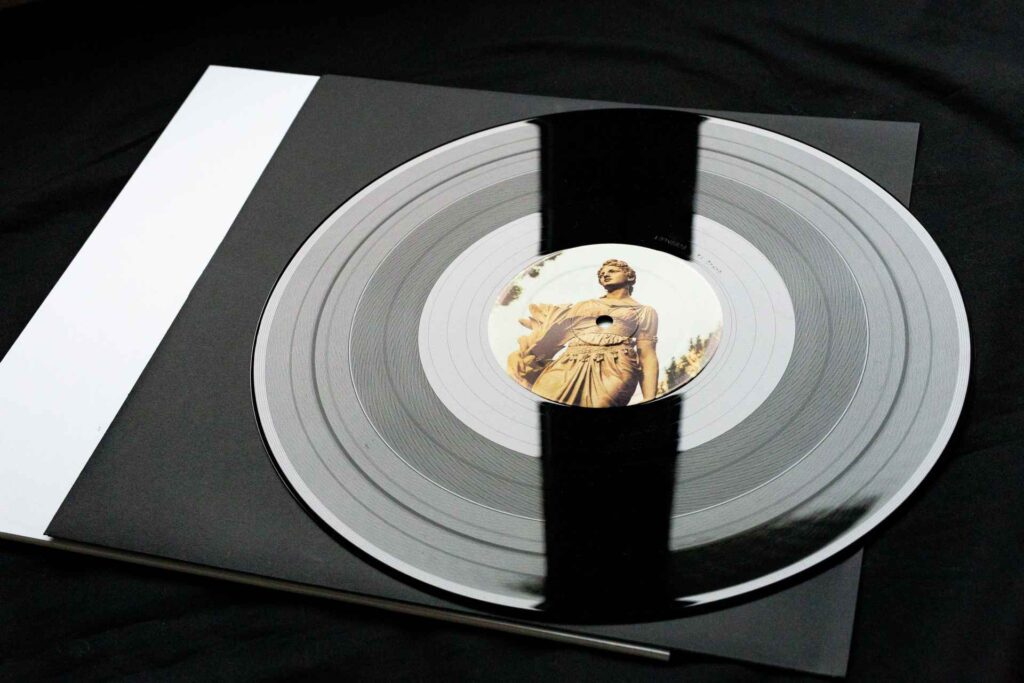
We at Technokunst have a strong focus on vinyl as a carrying medium for music. We are also glad to see that you keep pushing vinyl releases. What are your thoughts on vinyl as media and how do you see the future of releasing records? This is especially interesting now that digital distribution seems “easy” while we hear vinyl releases may end up getting delayed on multiple stages of the process and by as much as 6 months.
Of course, but I’m a firm believer in logic and if keeping certain medium delays everything and actually has more cons than pros I will back off from it for a while until it starts to make more sense. Nothing in my life was chosen based on what’s easier… quite on the contrary, rather what is more logical at the moment. So, vinyl will still play a big part in Secession but in a way that has more sense and there is a plan for the next 12” ready to be executed.
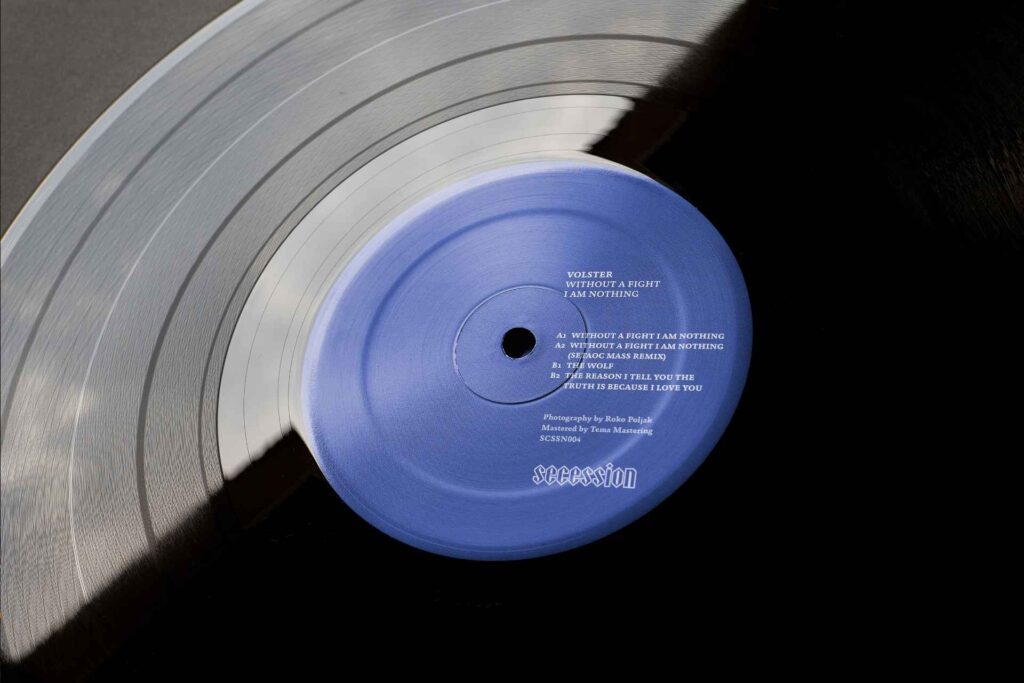
What is your method of production? Do you use a mixture of analogue and digital or instead focus on either of them? How does your workflow look like? Care to share a few photos of your studio and favourite gear?
It started primarily as digital only but then it evolved into a mixture of digital and analogue with couple of rhythm machines, synths and pedals. But lately due to different reasons I found myself doing almost everything in DAW. I just went into this rabbit hole of plugins that are fantastic at the moment and this is where I feel comfortable now. Elektron still plays a part of it, with Digitakt as my main rhythm machine.
What is in focus for the Volster project right now? Promotion, production, or playing?
I always did a lot of things at once which worked ok but now, I’m planning to get in the studio more and dedicate my focus there.
Can you share some of your favourite music – current or past, that you wish readers of this
interview heard?
I listen a lot of different kind of music and there may be days without me listening to anything Techno related. The last thing that I’m in awe of and that I regularly play in my car is the new Kendrick Lamar album, which is so honest and truthful that is very inspiring to me. Also, you can check out my Home Selection playlist for Oecus on Spotify to get a feel of what I usually listen to.
Technokunst asks: Orbe
Hey Fernando, thank you for accepting our interview request! Technokunst is a collective of artists
who embrace events with the tradition of vinyl dj-ing as well as of modular live sets. Orbe as a project
therefore has been on our radar for some time now - we really resonate with the work you’ve been
putting out.
Can you tell us a little bit about your background and how you met with techno? What are
some of the initial influences that shaped your sound? Is there anyone out there that helped
you grow and learn, or did you pick it up all by yourself?
It is my pleasure to participate in your project, thank you! I was born in a town called Algeciras in
southern Spain, in the Andalusia region. I started listening to electronic music through my older
brother, mostly Breakbeat and Drum & Bass.
When I moved to Seville to study audio engineering, I met a guy called David – still a good friend to
this day - who was the one who led me into Techno music for the first time. When he showed me a
Richie Hawtin set, I was blown away.
Later I continued my sound engineering studies in Madrid, and met Ruben De Felipe and Eduardo De
La Calle, who both greatly influenced the type of sound that represents me today. They would always
bring home new music from Drexciya, Juan Atkins, Jeff Mills, and then I would lock myself in the
studio influenced by all those sounds that were new to me.
The Iberian techno scene has been at a constant high point for some time (at least until covid hit)
How is your connection to your fellow Spaniard and Portuguese producers?
The relationship has always been good and healthy. In Madrid, - where I live now - there are fantastic
producers with good record labels that bring very positive things to the Techno scene. We are all
good friends with Ocktawian, Tadeo or Psyk, and we share projects.
The same thing stands with Portugal. They are humble people, wanting to work toward contributing
positive things to the scene. I would mention the guys from Hayes Collective, Pedro Rebelo 'Ruuar'
or Gustavo, the promoter of Neopop.
photo credit: Pablo Gallardo
Some of your fellow producers from the Spanish scene left their homebase and moved to Berlin
(Refracted and P.E.A.R.L. to name two of them). Have you remained in Spain and do you have
any plans to move around?
I love Spain and I don't want to move abroad :)
How do you feel about the current state of affairs in the world of techno? It seems that the 90s
has made a comeback and lots of labels shift their sound towards higher bpm to accommodate this.
Yet we can see hear that the tempo of your releases has remained in the lower 130s.
I don't think justice is done to artists who work well in the studio, who make good music, who have
good labels that bring positive things to the scene. Basically, an unresolved imbalance exists. Some
with very little input achieve a lot, and others, with a lot of work, achieve little. It is clear that the
industry evolves, the networks, the image ... okay, I respect it, I understand it and accept it, but I
believe that there are certain values and pillars that should not be ignored. The industry has to evolve
from a basis that in my opinion is immovable.
Regarding the BPM, I think it is a trend that will soon end and it will go down again, and then it will go
up again, it is a continuous cycle.
With the release of Transhuman EP on TOKEN, it caught our eye that you were referencing the work
of Fereidoun M. Esfandiary - a transhumanist philosopher. Does futurology interest you as an
intellectual movement or is this more of a stylistic choice that complements techno well?
I have always been attracted to the afterlife, and to the thought of what the future may bring in terms
of technological and other advancement. For me, Techno and modular electronics are a way of
contacting the future, the avant-garde. The EP on Token Records is called 'Transhuman' for this
reason.
Token 102
We see that Orbe Records is mostly a means to release your own music with full creative control, but
we also see some guest appearances - such as Spanish techno veteran Eduardo De La Calle. How
did you arrive to the decision to start your self-titled label, and how do you curate the output
of Orbe Records?
After many years of making music and maturing my sound, I was confident enough to launch my own
label with my own concept. I tried going this way to be able to develop a catalogue without an A&R
assessing what was good and what wasn’t. It was a little over 6 years ago that I launched it as a vinyl-
only label. This is a concept I ultimately decided to change in 2019, since there were almost no
Techno DJs left that played vinyl. I apologize to the followers of the label but I had no other choice to
keep things going.
I am already preparing the next release, number 012, but all pressing plants have waiting lists until
next summer... :(
Your most recent release on Orbe Records – “Psy Visionary” was released as a lengthy LP on a span
of 4 x 12” vinyl records. This is becoming increasingly rare and seems like a bold move. Can you tell
us a little bit about this album and how you see the market for further releases like this? Do
you see this as a concept album like “Interplant” or more of a collection of tracks that describe
your type of sound well?
The idea of releasing this record came during lockdown. I took some machines home and it all went
from there, I made a lot of music that I knew had to see the light of day. It is rare to see a 4x12 album
in the current market, - it is very risky - but perhaps this encouraged me to do it even more. It was a
way to differentiate myself from others. The concept is different from 'Interplant'; in that 'Psy
Visionary'; is more focused on the dancefloor, all written and created using modular synthesis.
How does your production setup look like? Do you prefer using software, hardware, or a
combination of both? Can you show us your studio and your favourite tools for production?
In the studio I do everything hardware-based during sound creation and recording. Once recorded in
the multitrack, I can use dynamics plugins for correction, be it an EQ or an exciter.
My favorite tool is modular synthesis. I also love sampling my own sounds, and do so either with the
Digitakt or the Morphagene synth module, by sending any sound from the mixer through an auxiliary
group output. I love using the Bark Filter Processor by Verbos Electronics and also the Elektron
Monomachine synthesizer. I also use an old harmonizer DSP, the Eventide H3000.
As for gigs, what is your preference, performing live or through dj-sets? More intimate clubs, or
larger venues such as festivals?
I prefer live performances on big festivals and DJ sets in a more intimate club setting.
What is next in focus for the Orbe project? More gigs or more production?
Always both. To have gigs it is necessary to make records. :)
Can you share some of your favourite music – current or past, that you wish readers of this
interview heard?
In would choose Boards of Canada or Brian Eno, music always to relax to.
Podcast 265 - Feral
2021 has been a year of many ups and downs, but we were pushing to end on a high note. Feral - of Hypnus alumni - helms our third podcast, and we are honoured to have him. This hour is a uniquely crafted contribution of spaced out deepness, and a level of storytelling quality you've come to expect from the Aube Rouge head honcho.
Podcast 197 - Desroi
Technokunst - a Budapest-based collective of like minded artists - has launched a series of podcasts, showcasing some of the best talent of the multifaceted genre we call techno. These podcasts equally feature live-recorded sets as well as studio mixes.
We are back on track after a bit of a hiatus, rolling forward with the amazing german talent Desroi. Desroi has supplied us with an hour of his mind-bending vision of techno.We have also interviewed him on our blog, where he talks about his process of selecting the tracks for the podcast. To see more, check the links below.
For each release a fitting color will be chosen from the Pantone universe. The identifier of Desroi's set is 197c begonia pink.
Podcast 072 - Luigi Tozzi
Technokunst - a Budapest-based collective of like minded artists - is launching a series of podcasts, showcasing some of the best talent of the multifaceted genre we call techno. These podcasts will equally feature live-recorded sets as well as studio mixes.
First in line is our dear friend Luigi Tozzi - delivering an explorative, dimension-hopping studio mix just in time for the festive season.
For each release a fitting color will be chosen from the Pantone universe. The identifier of Luigi's set is 072c blue.
